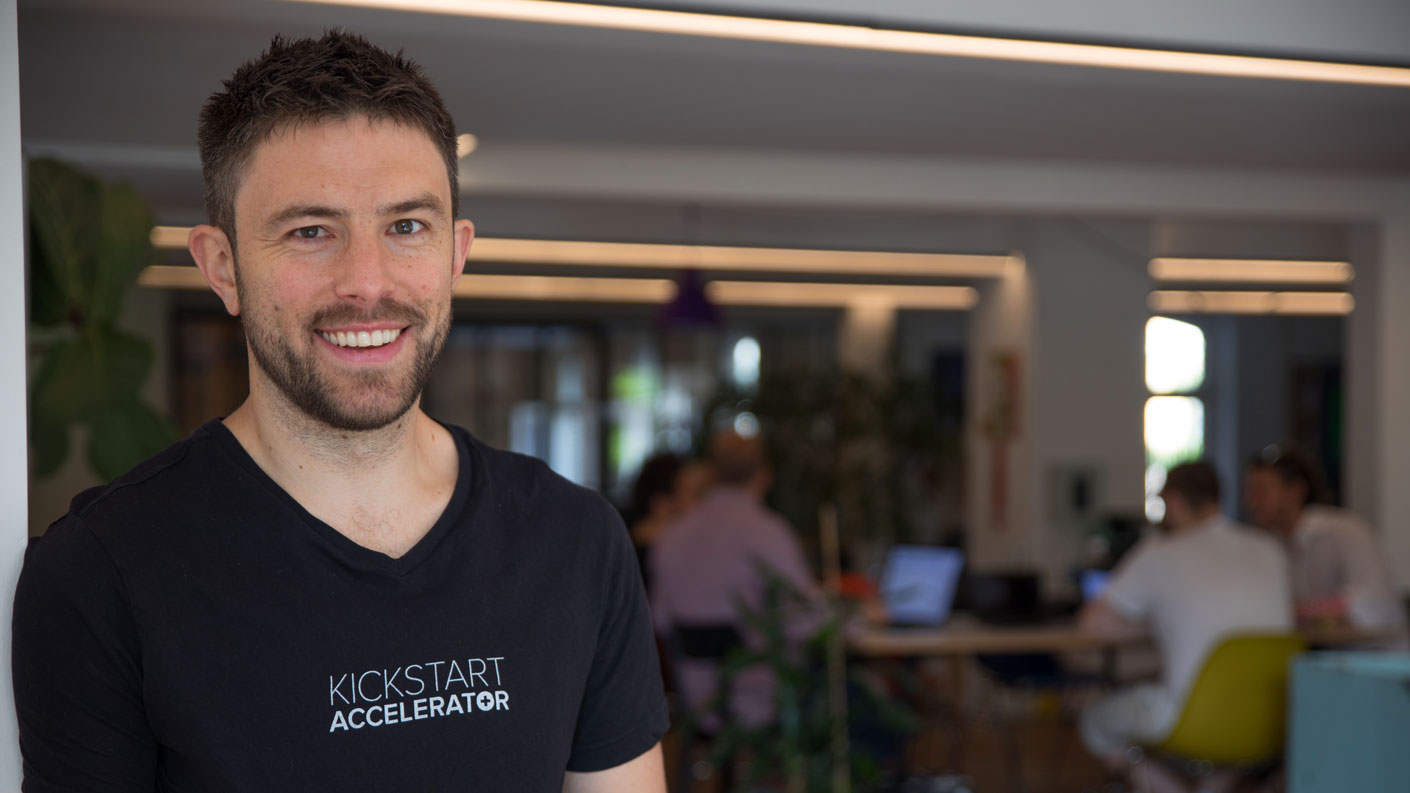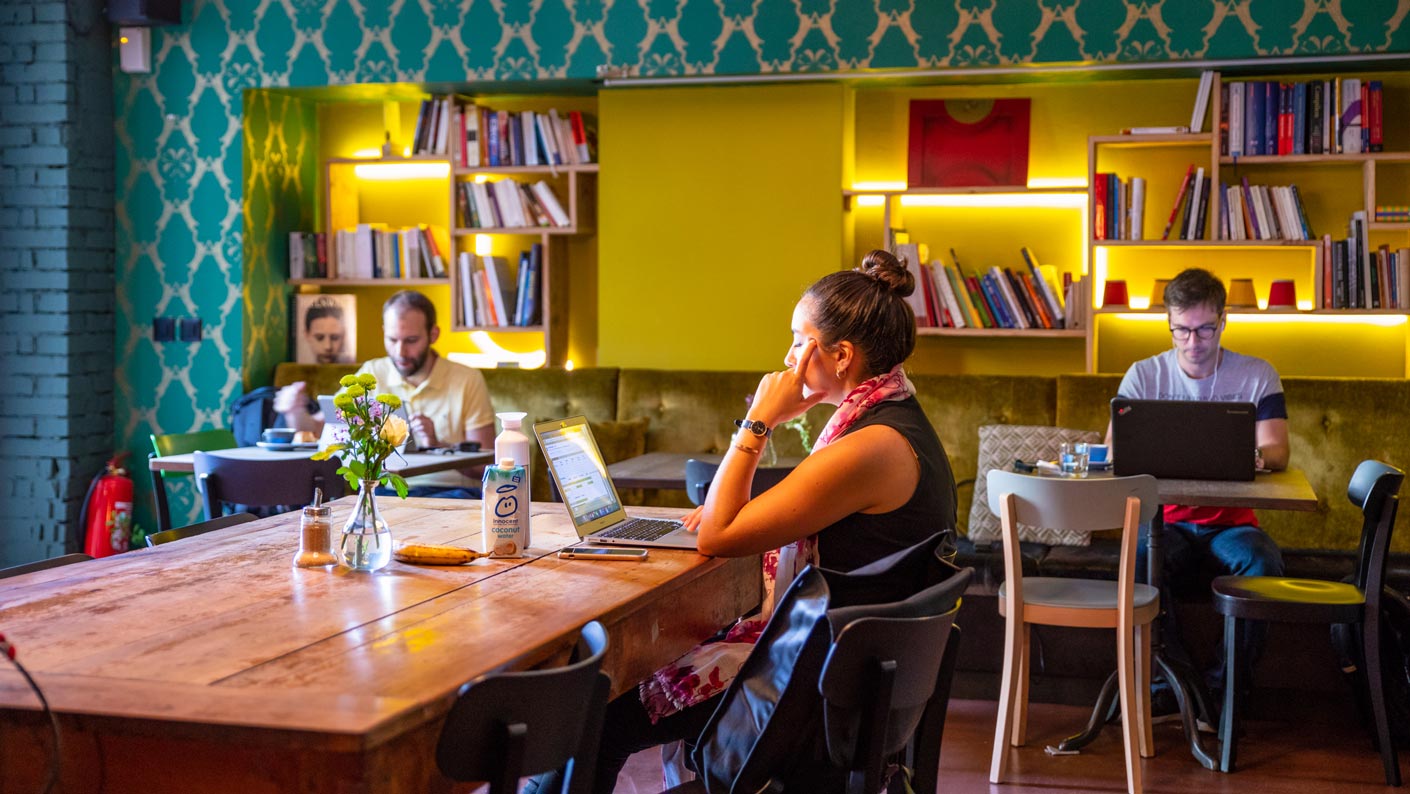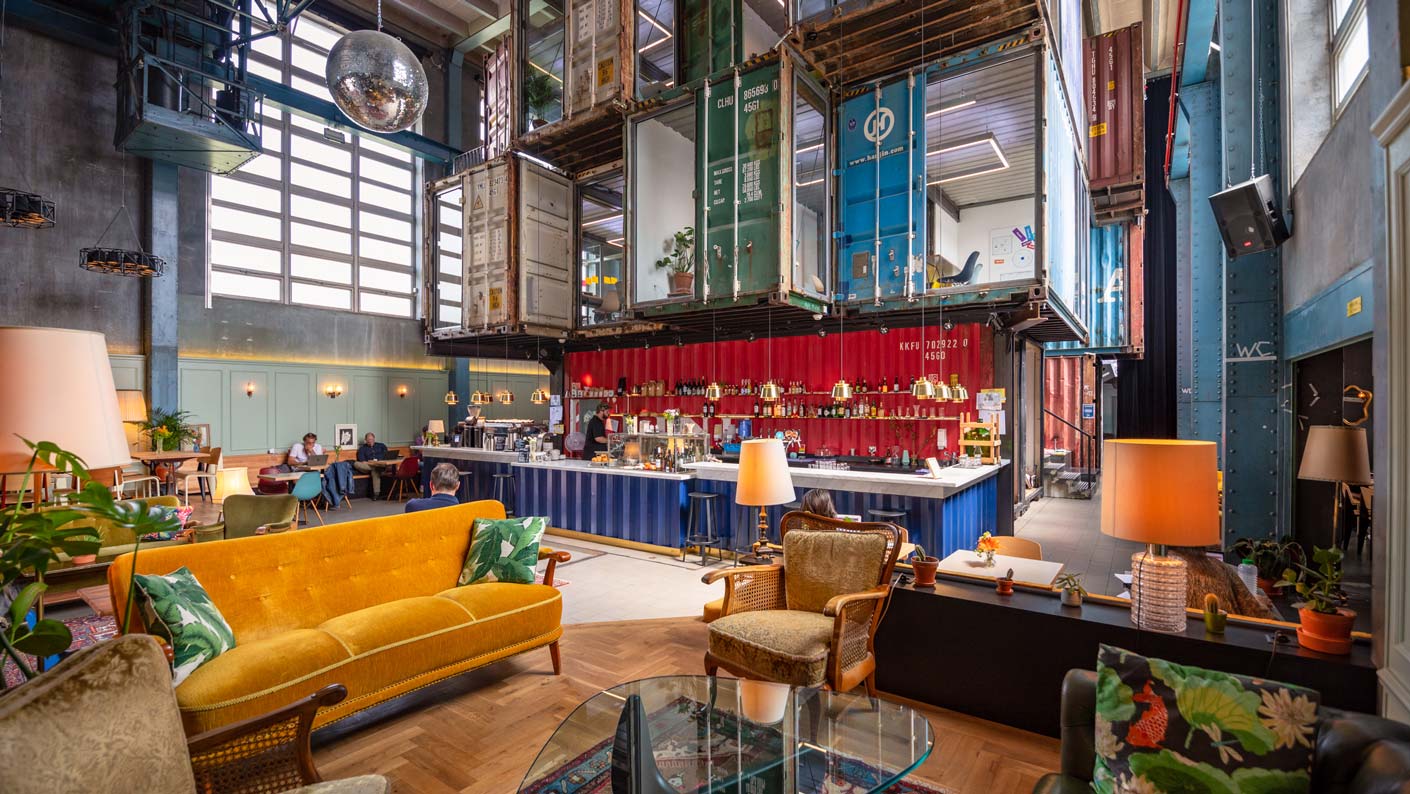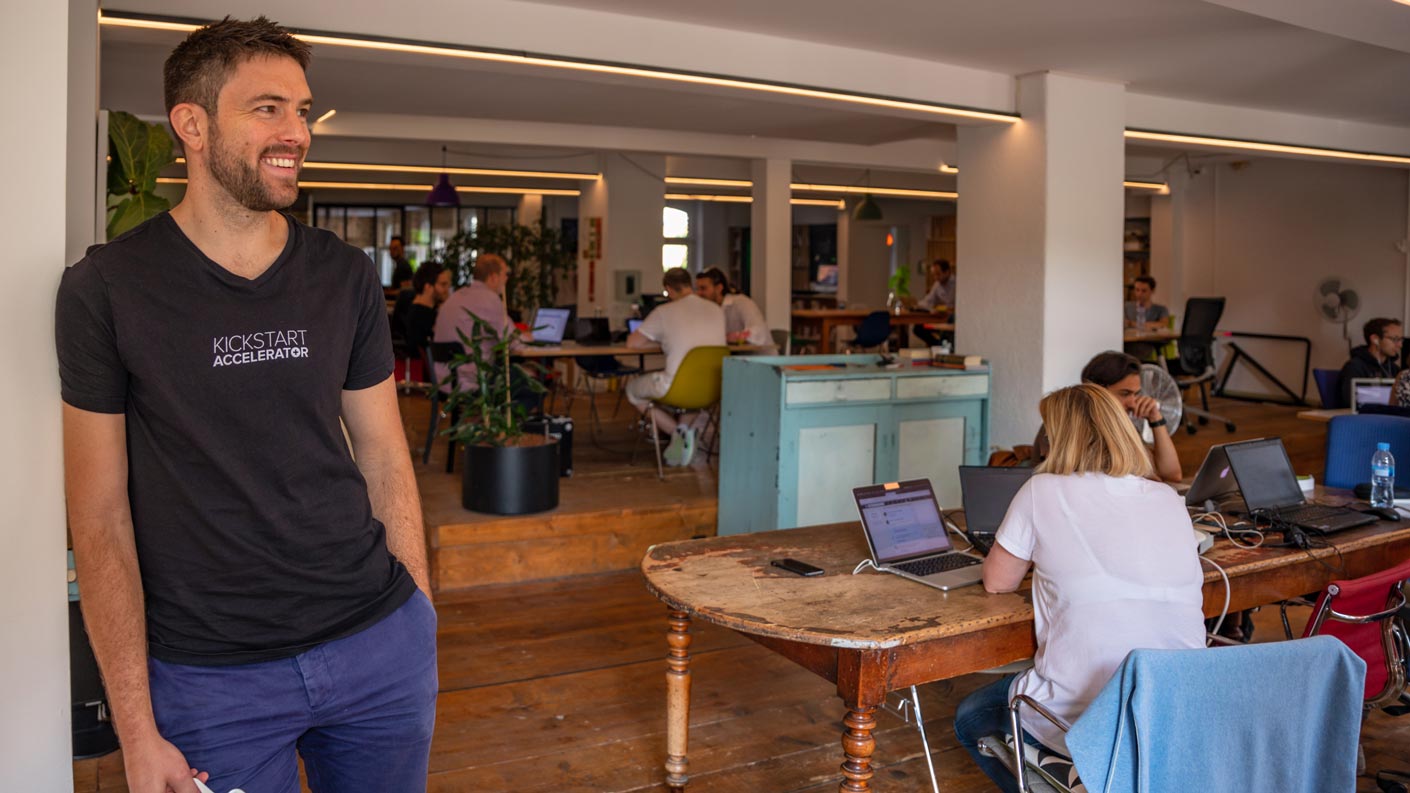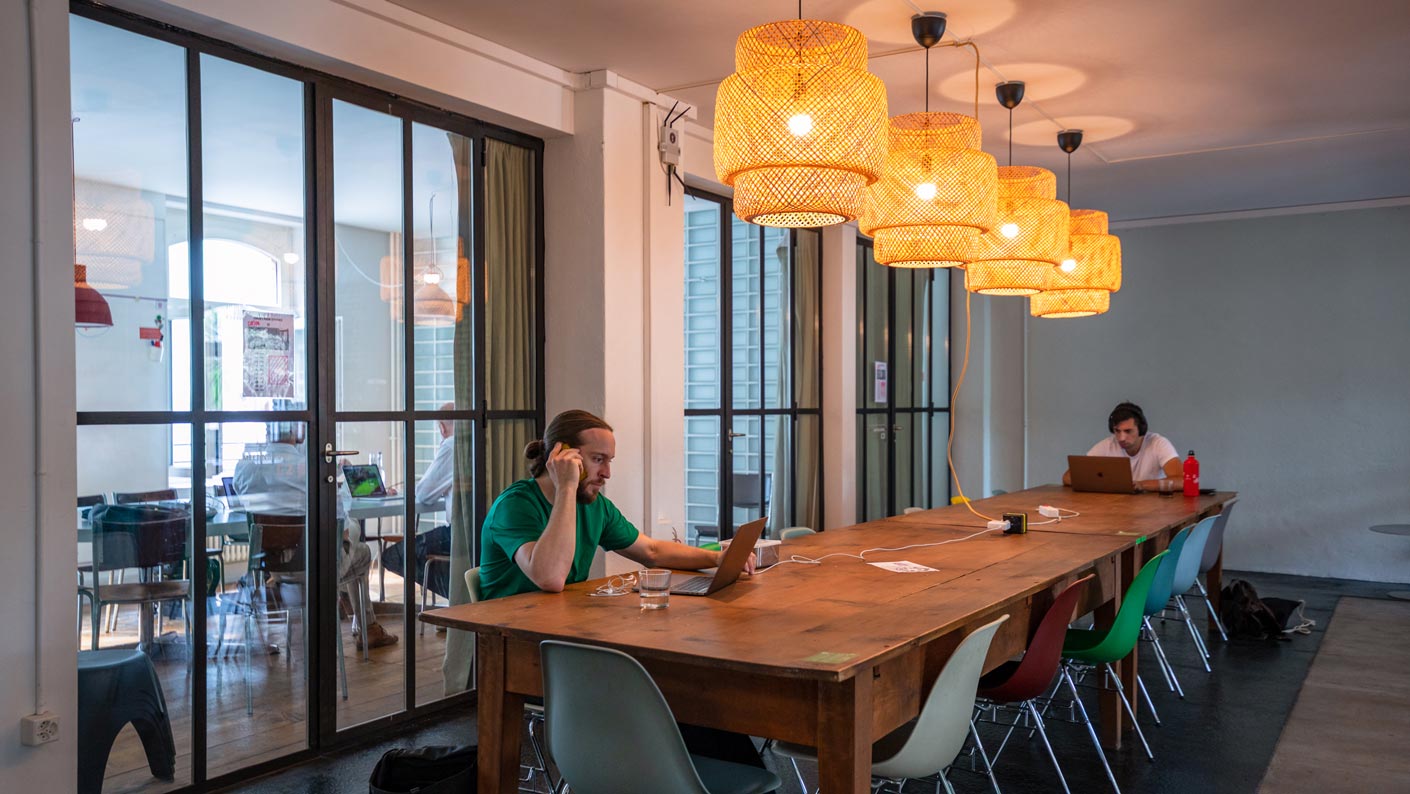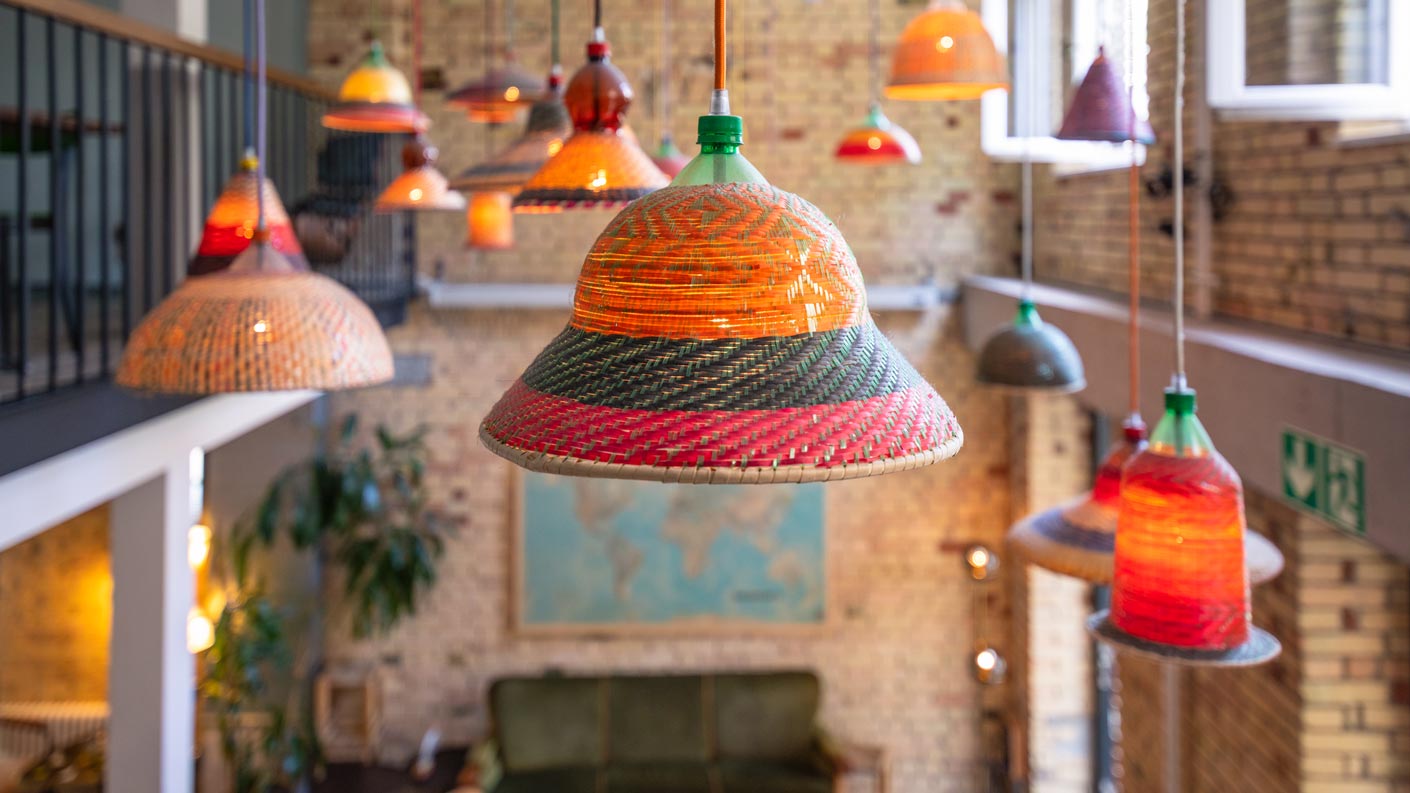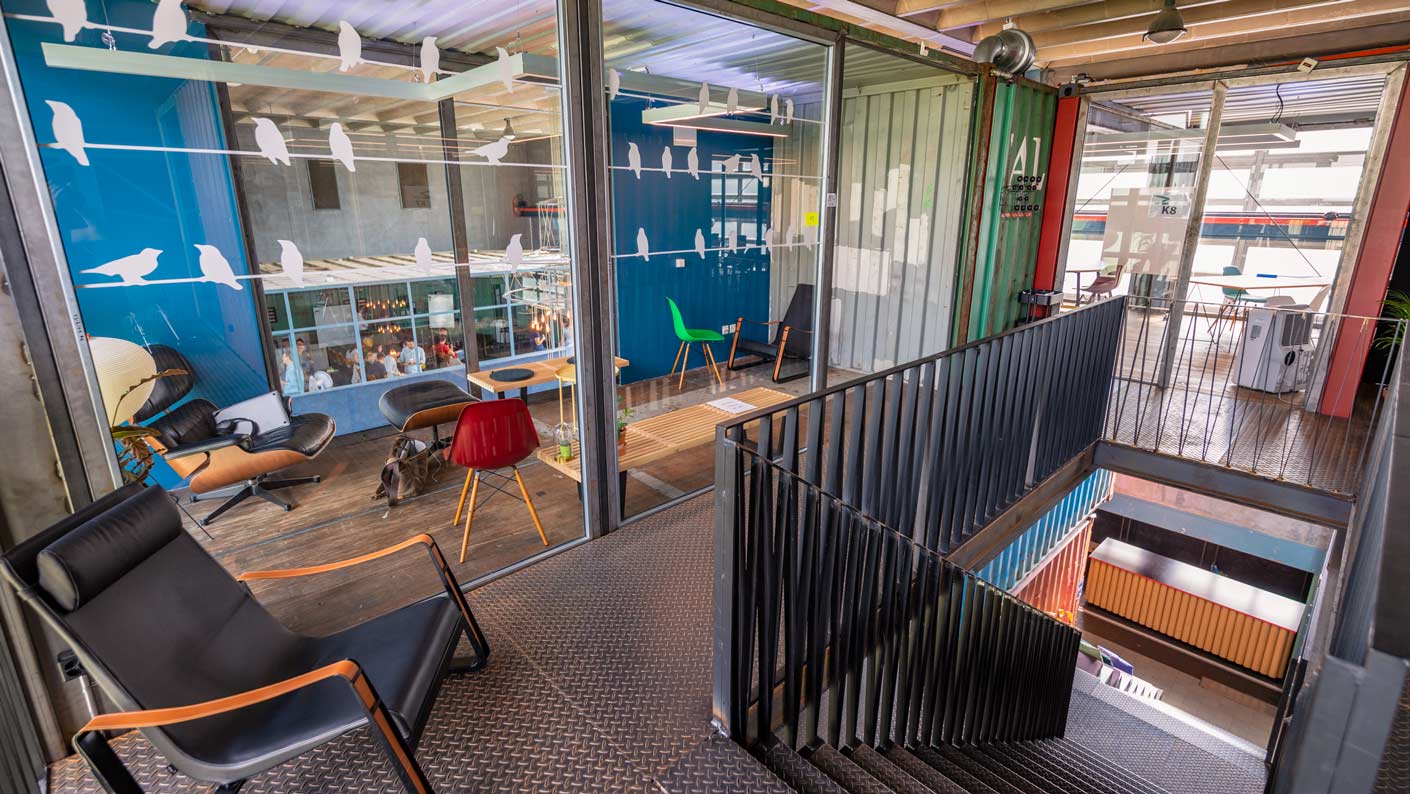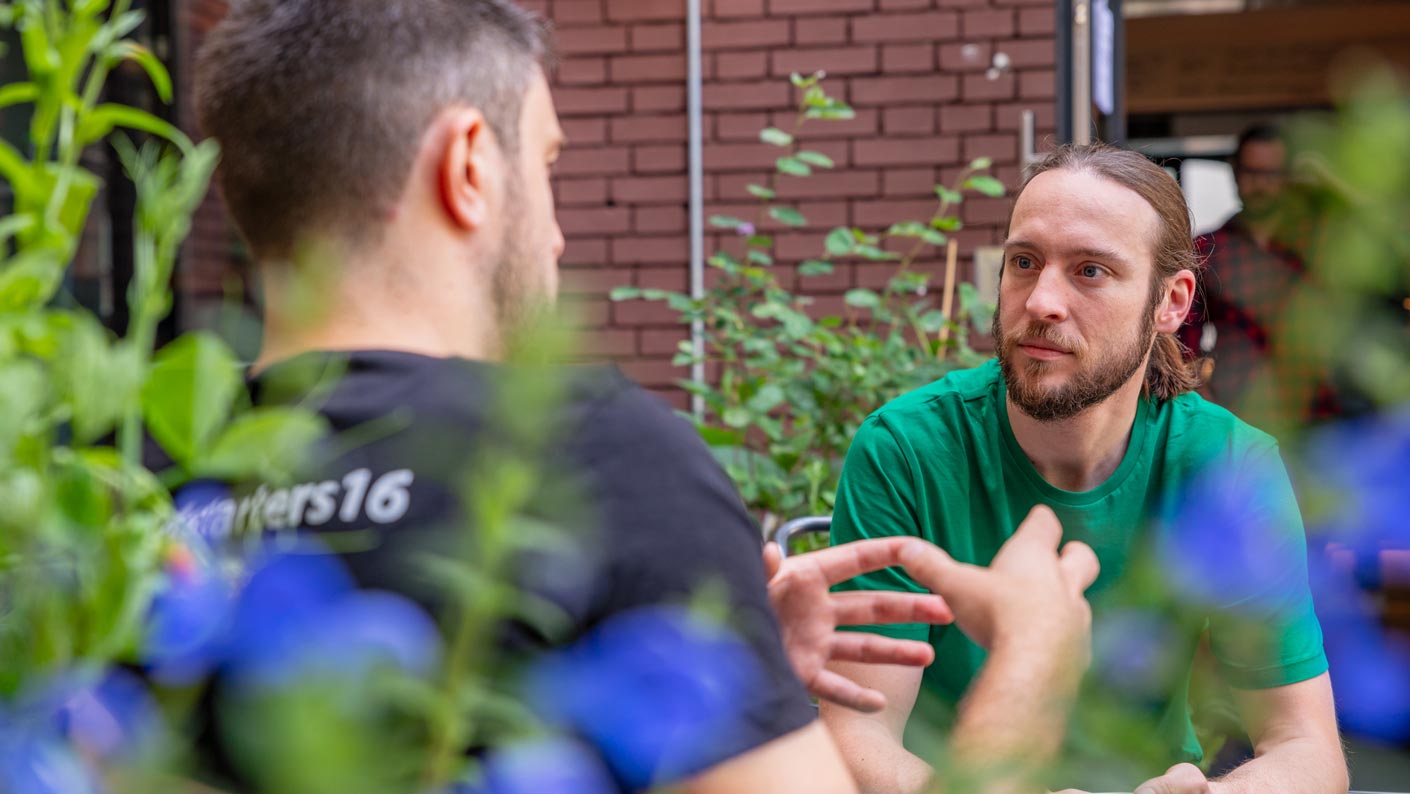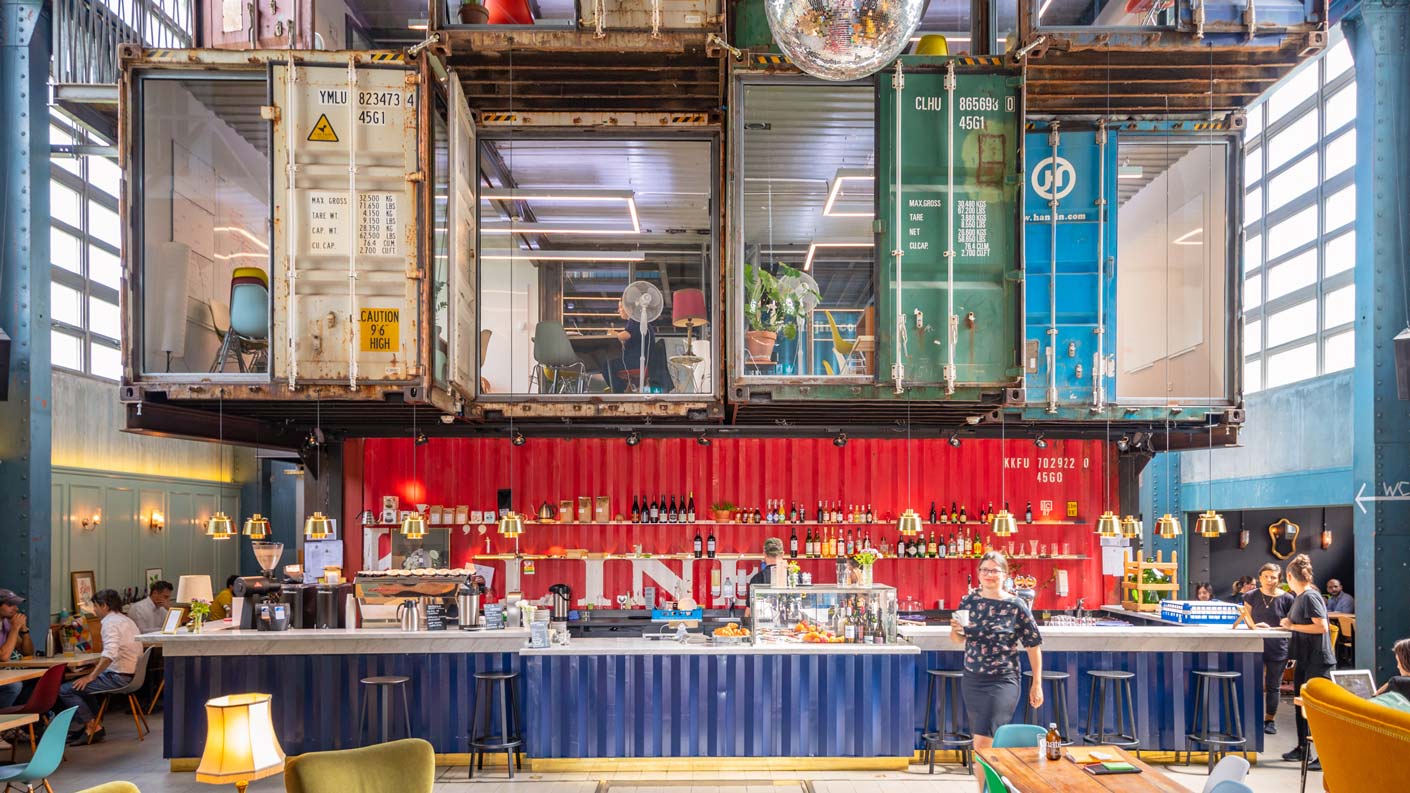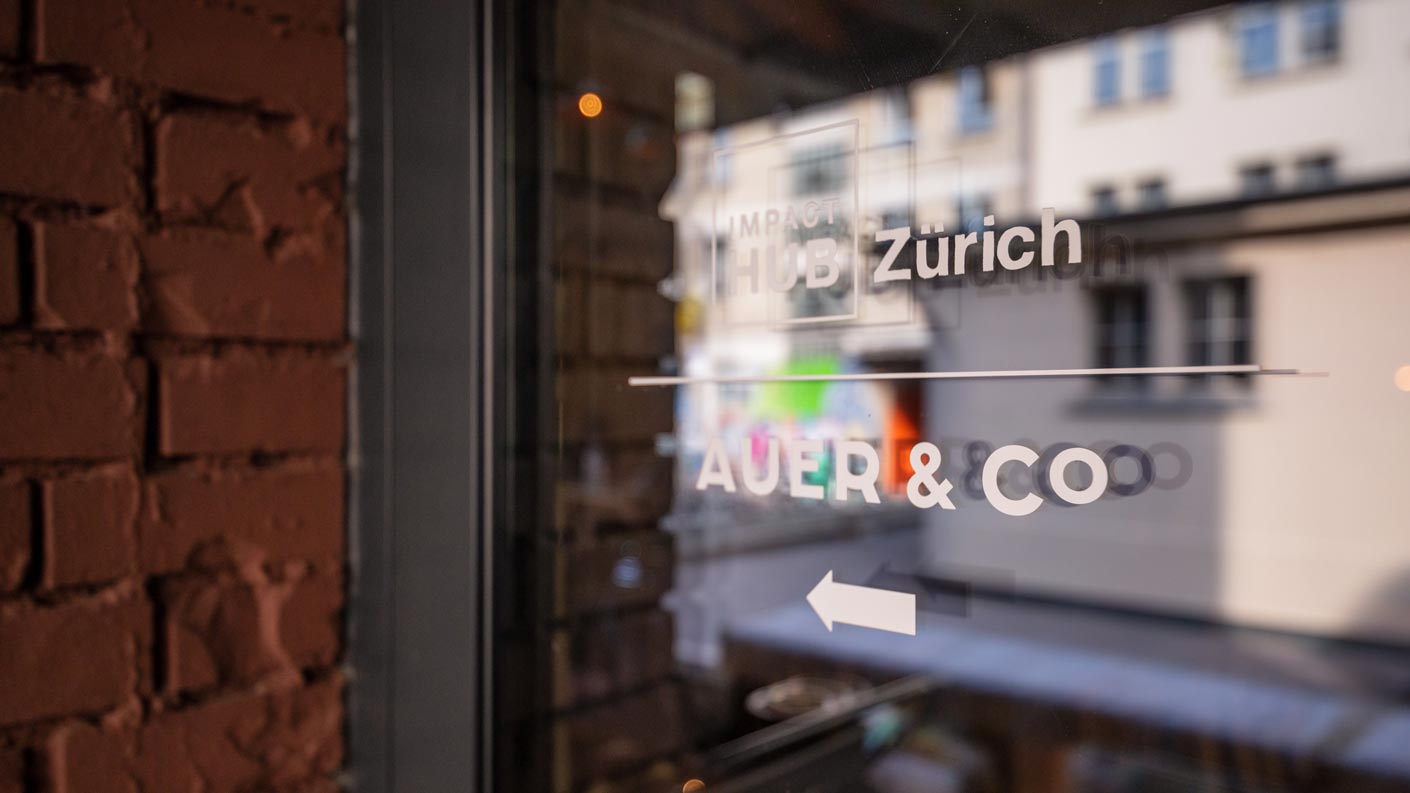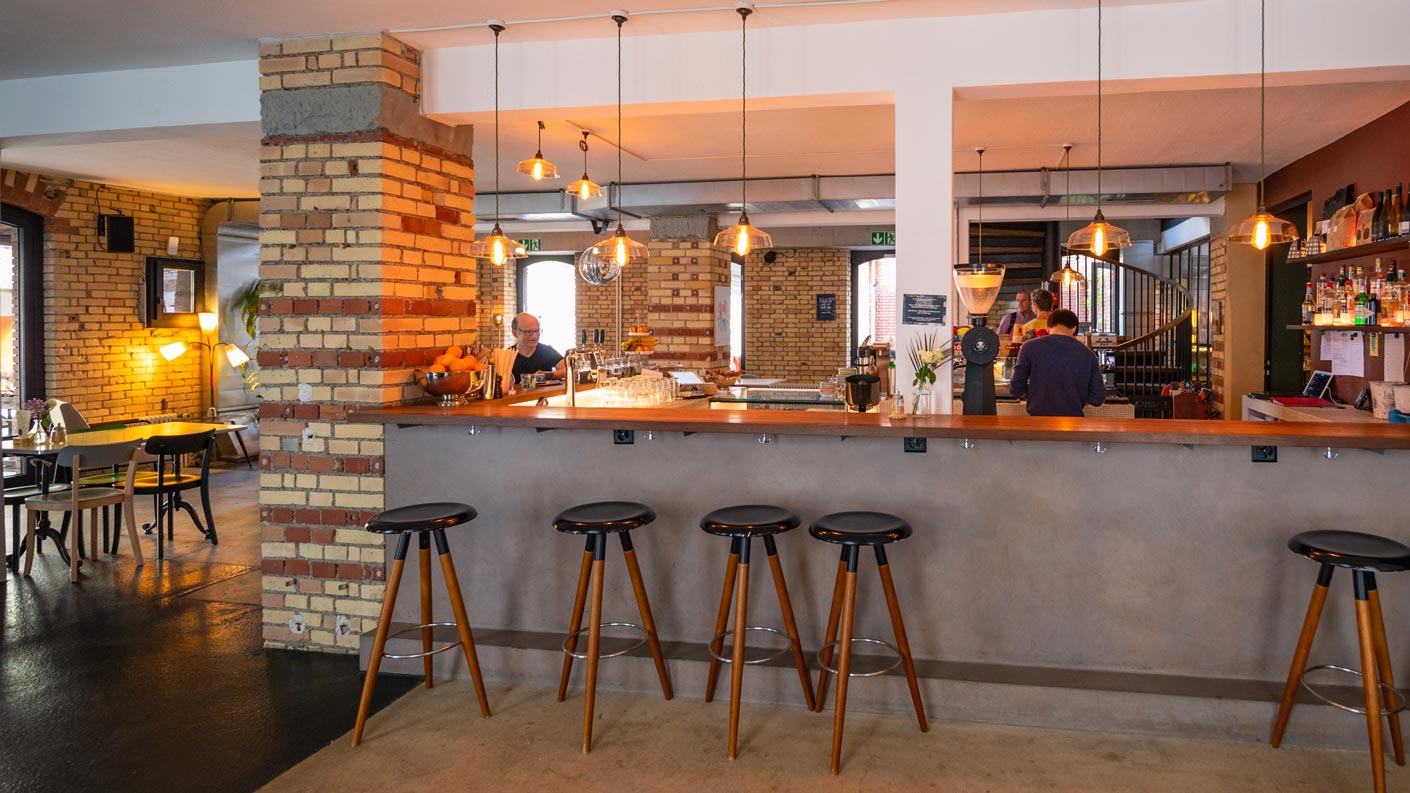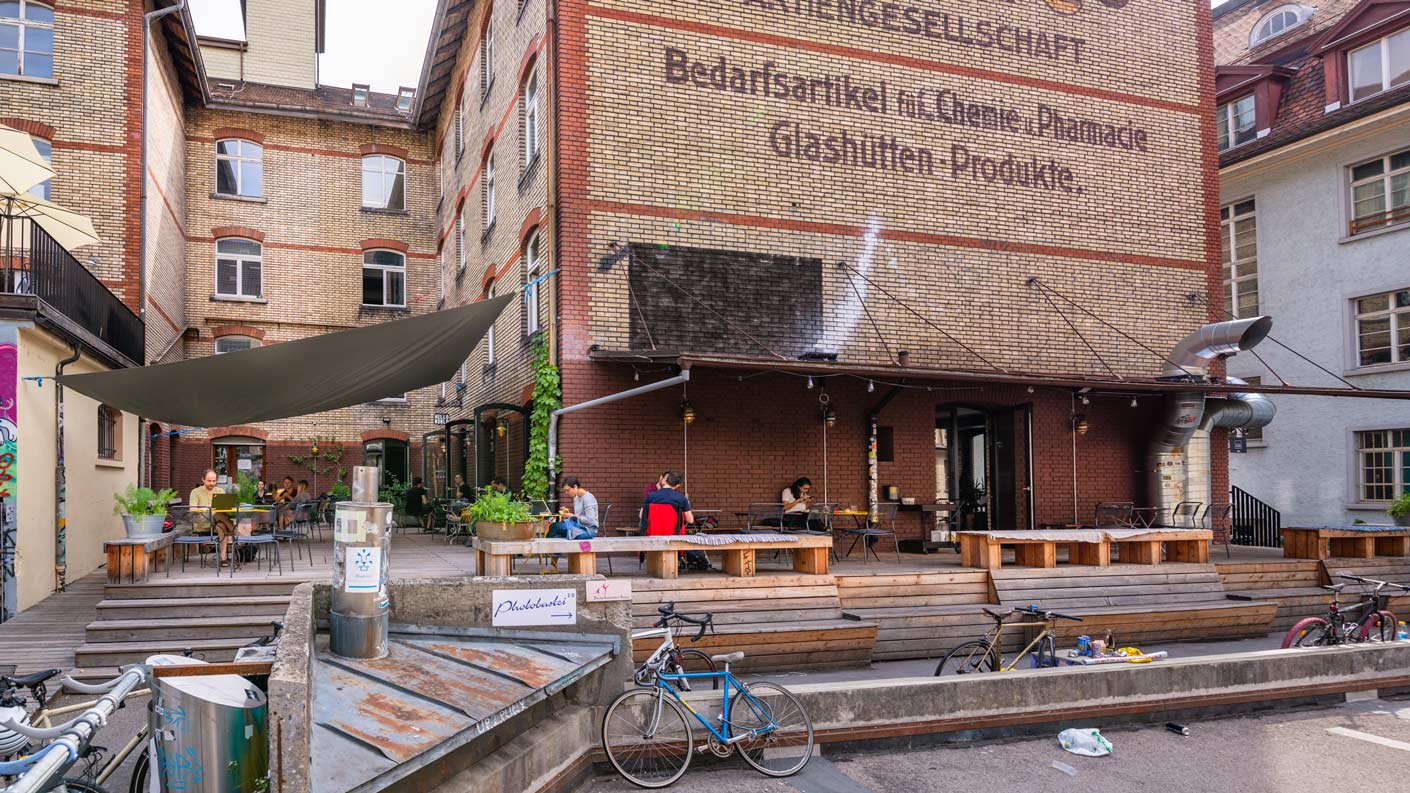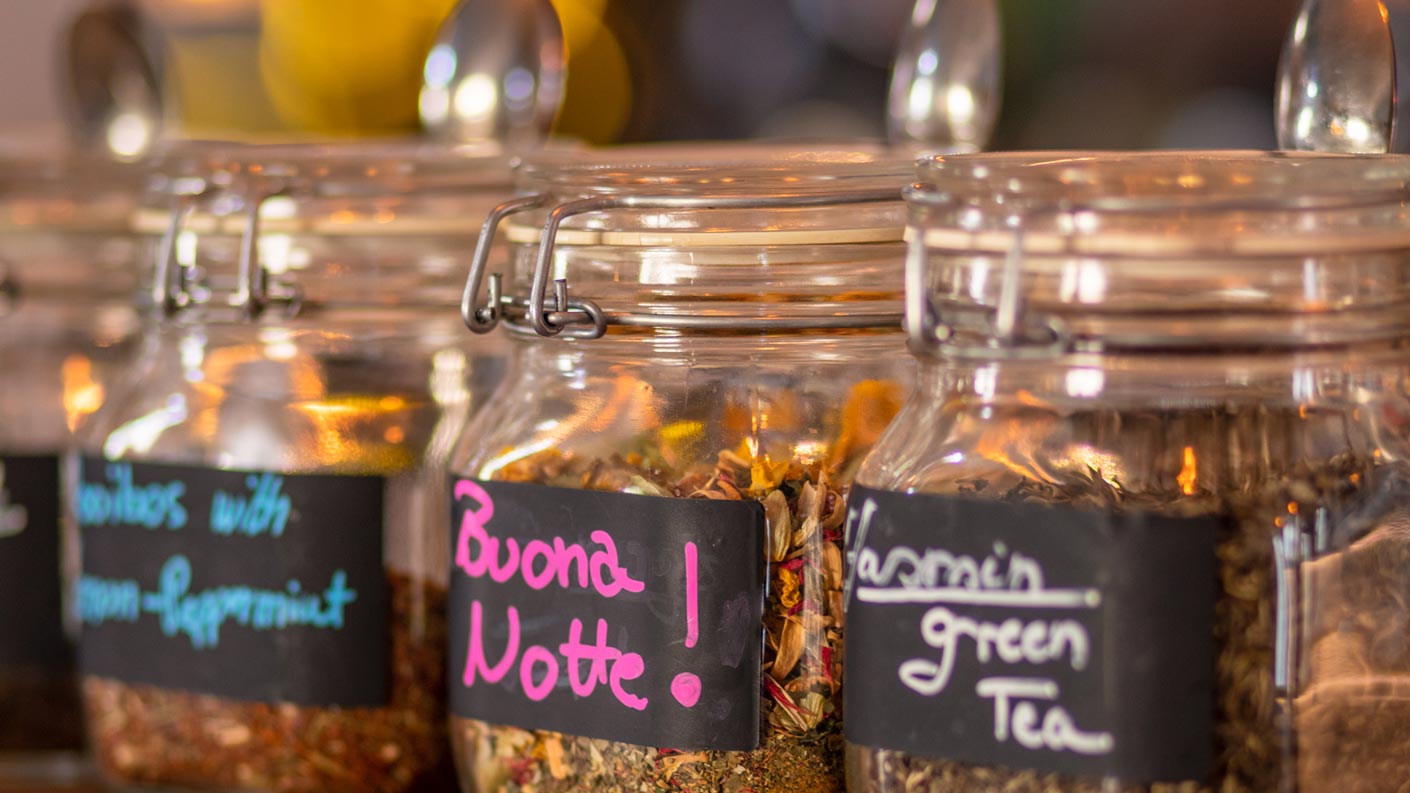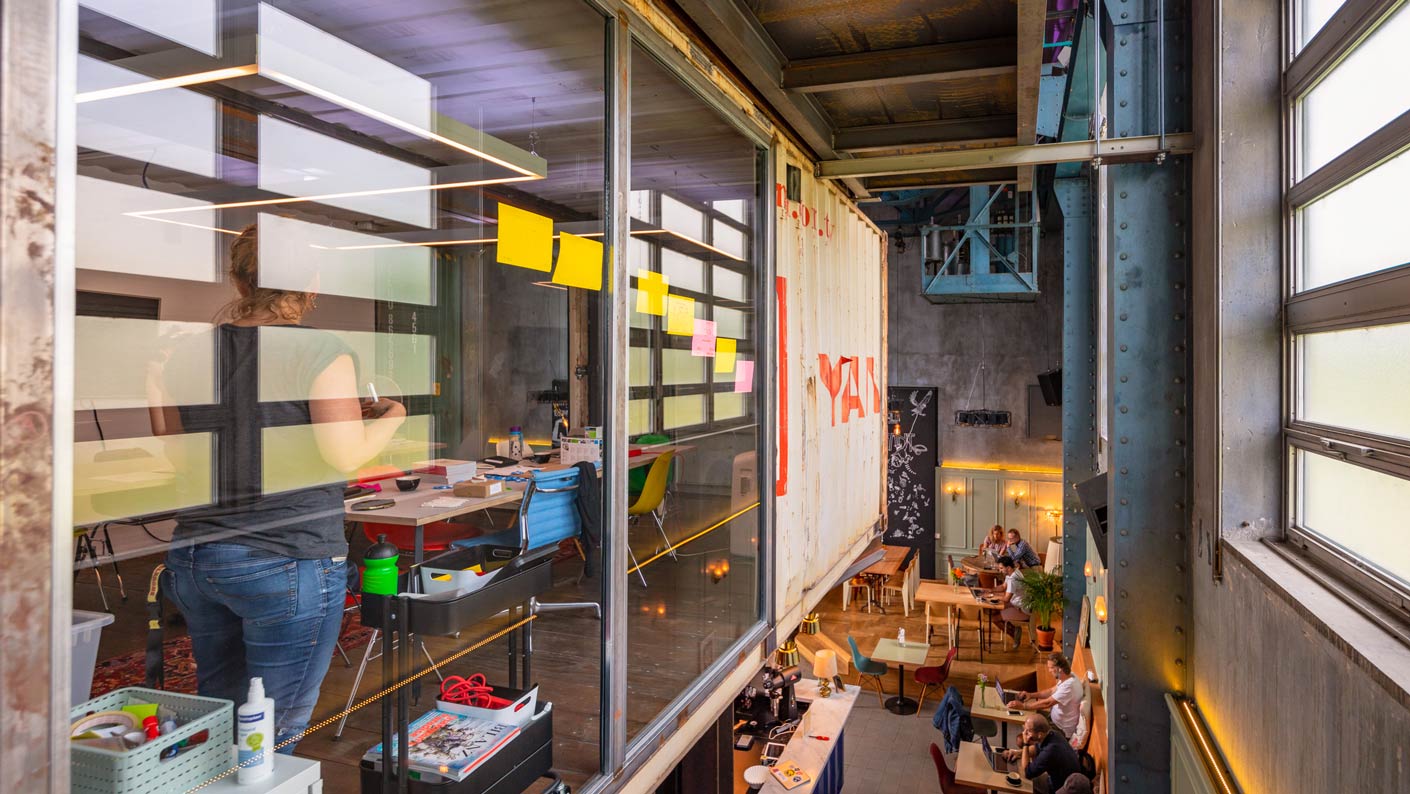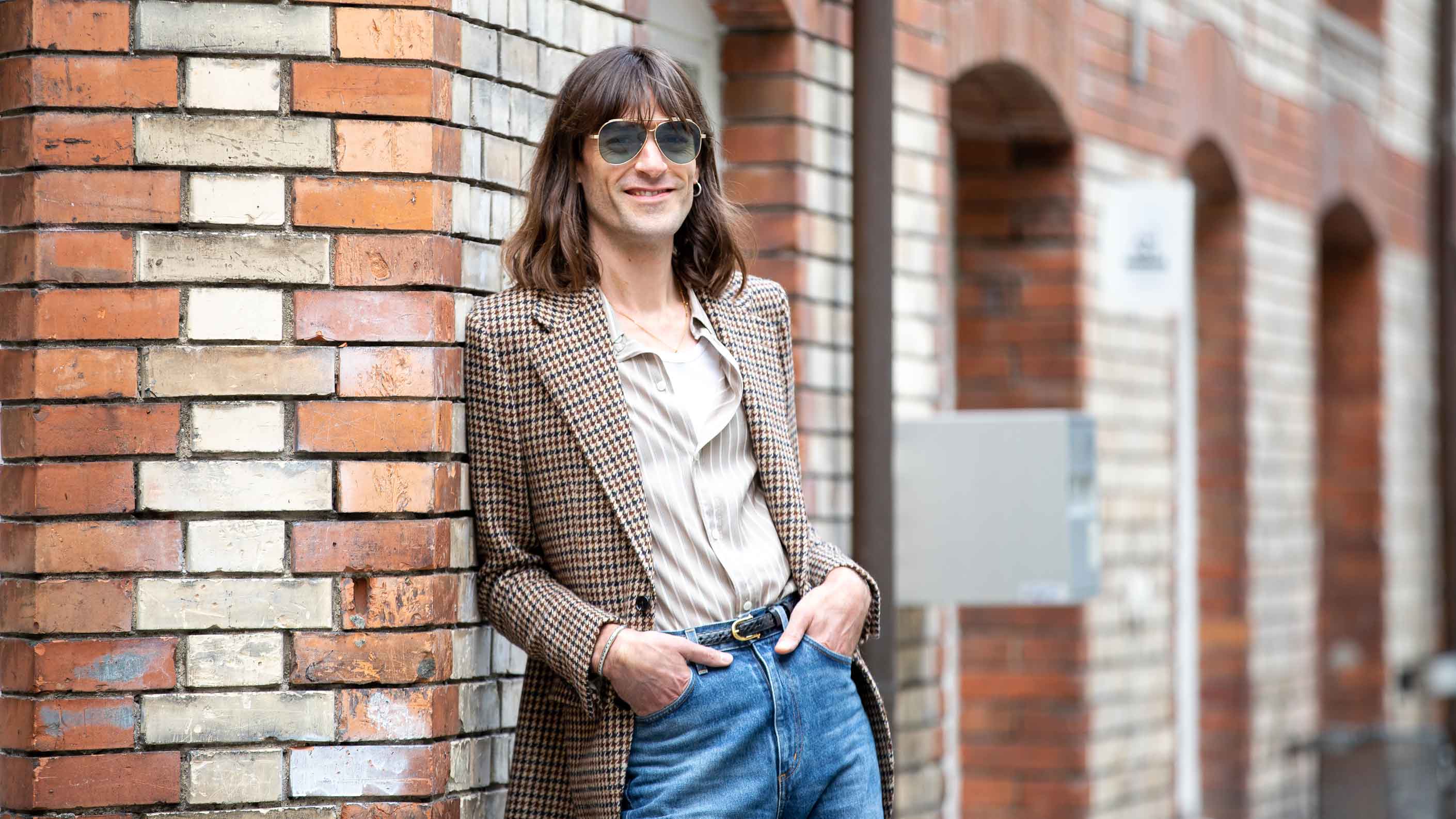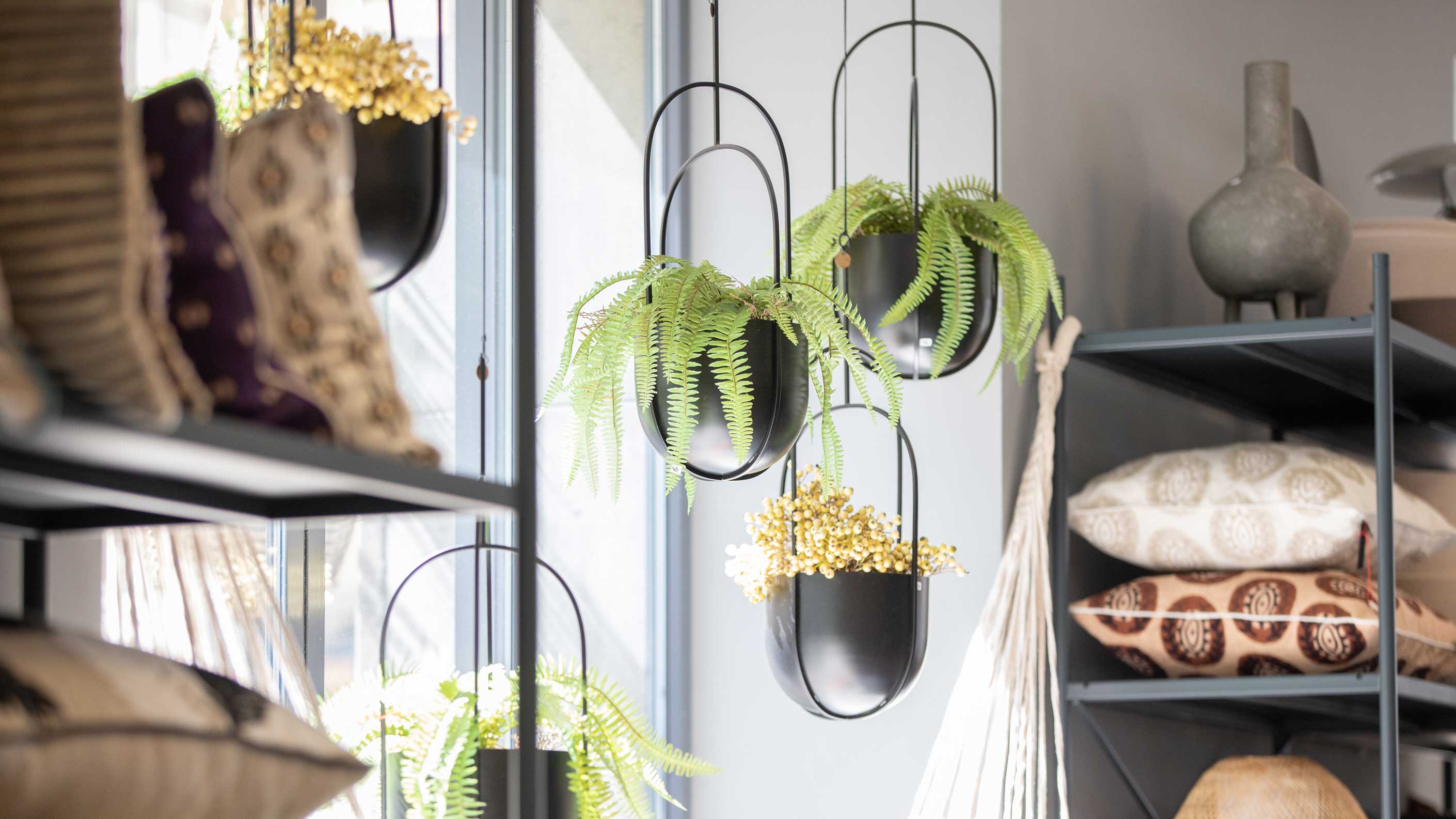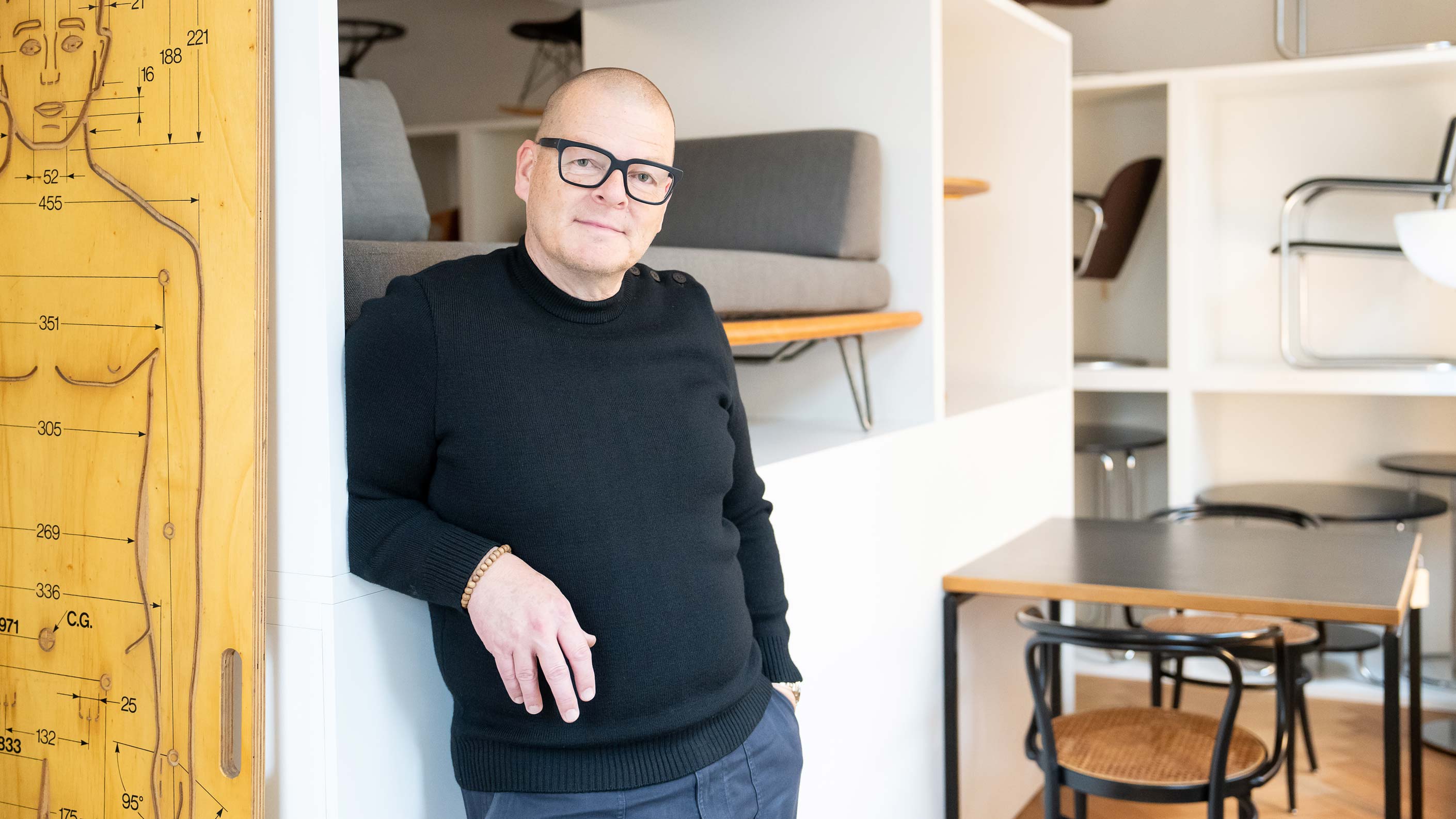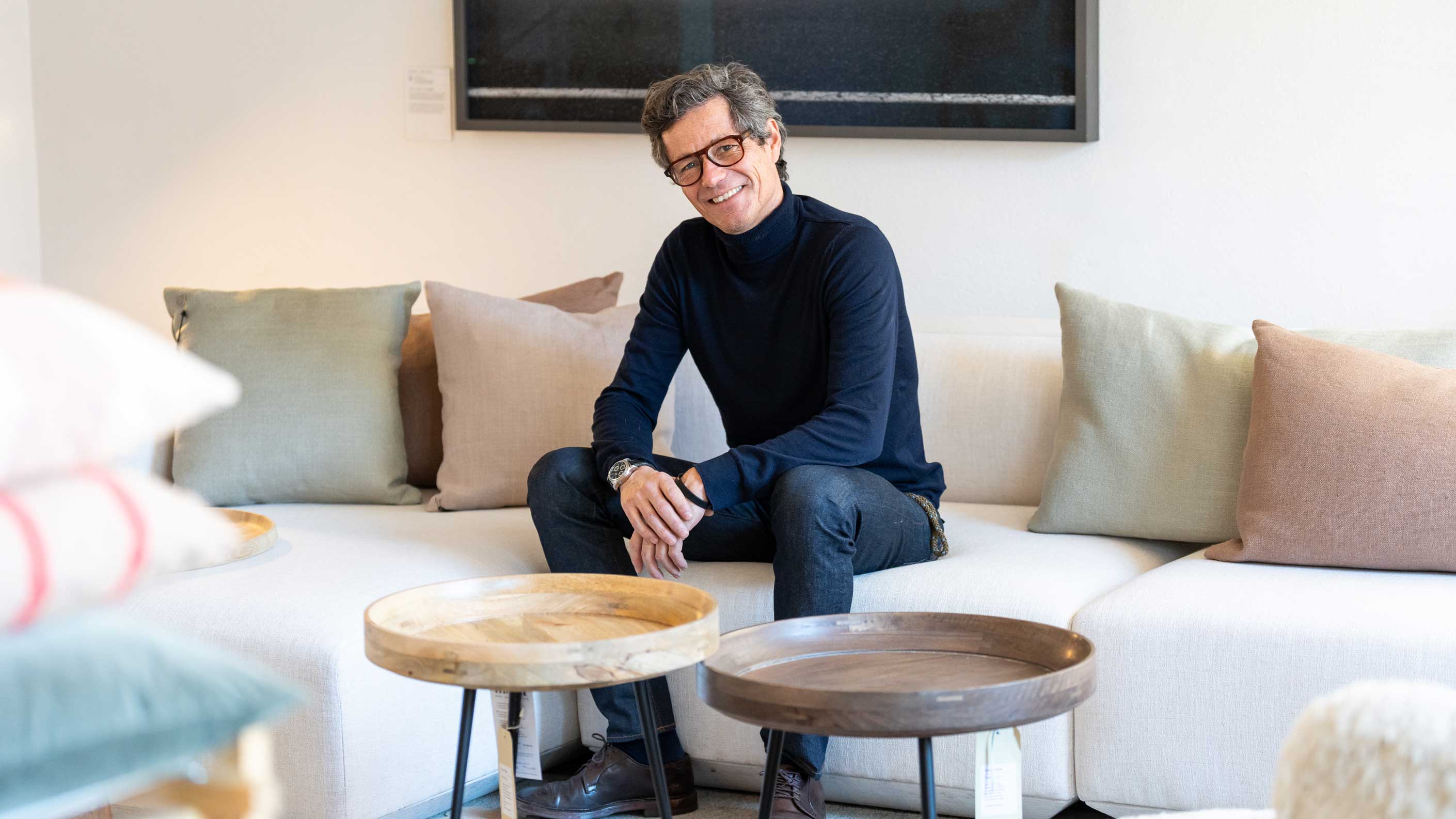‘To tell you the truth, we’re a clan’
The Impact Hub and Café Auer are recognisable for their spacious rooms, intelligent design and essential infrastructure. Whether for an hour or on a long-term basis, Sihlquai 131 is the number-one address for anybody looking for a place to do their work. The feel-good ambience is just one of the features that makes it a top choice.
‘To tell you the truth, we’re a clan,’ states Christoph Birkholz, co-founder and managing director of Impact Hub Zurich, when we meet at Café Auer. It’s morning, and the sun is shining down on the Sihlquai. Relaxing classical music is piped into the café from the speakers. Café Auer is part of Colab, one of the four locations belonging to Impact Hub Zurich.
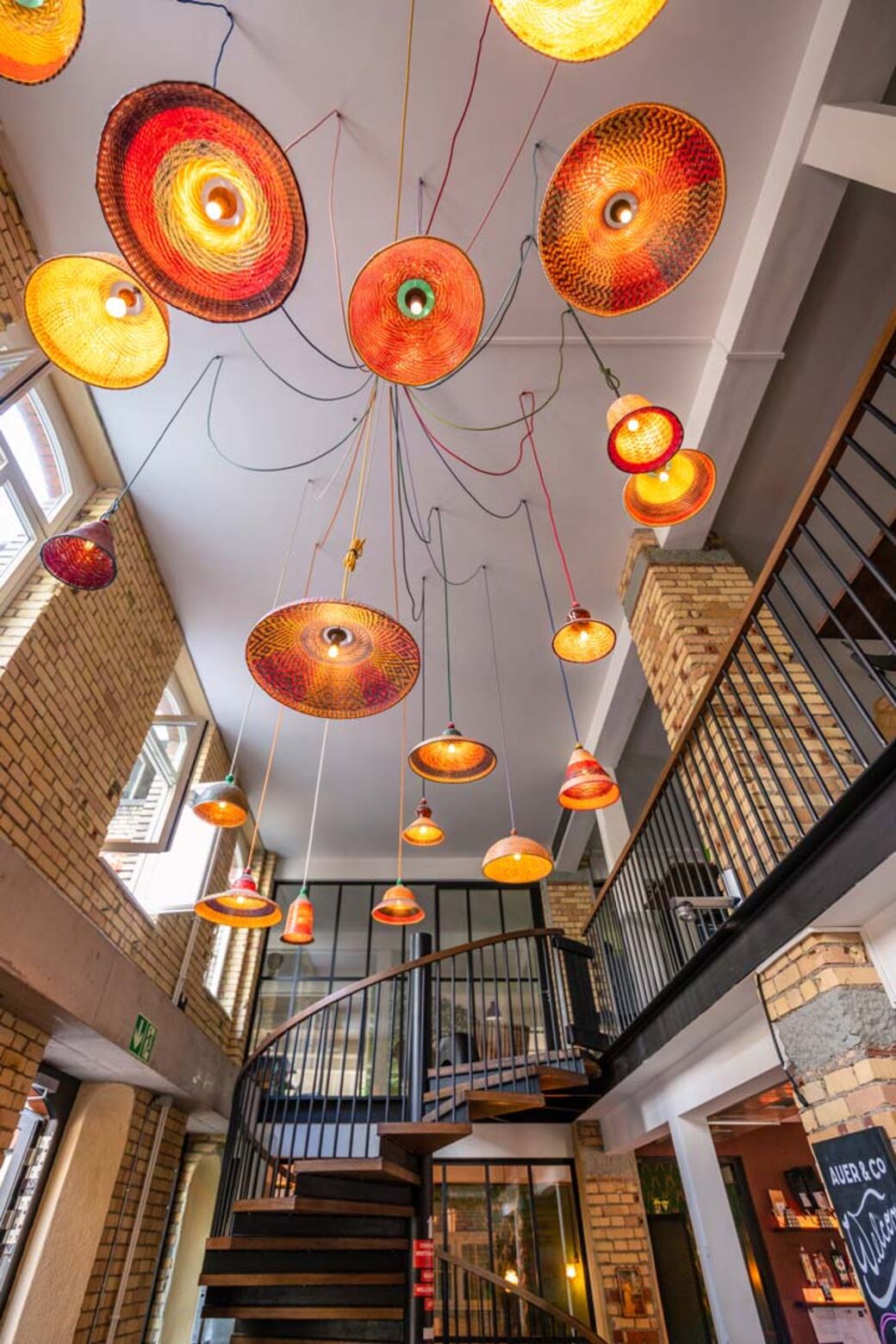
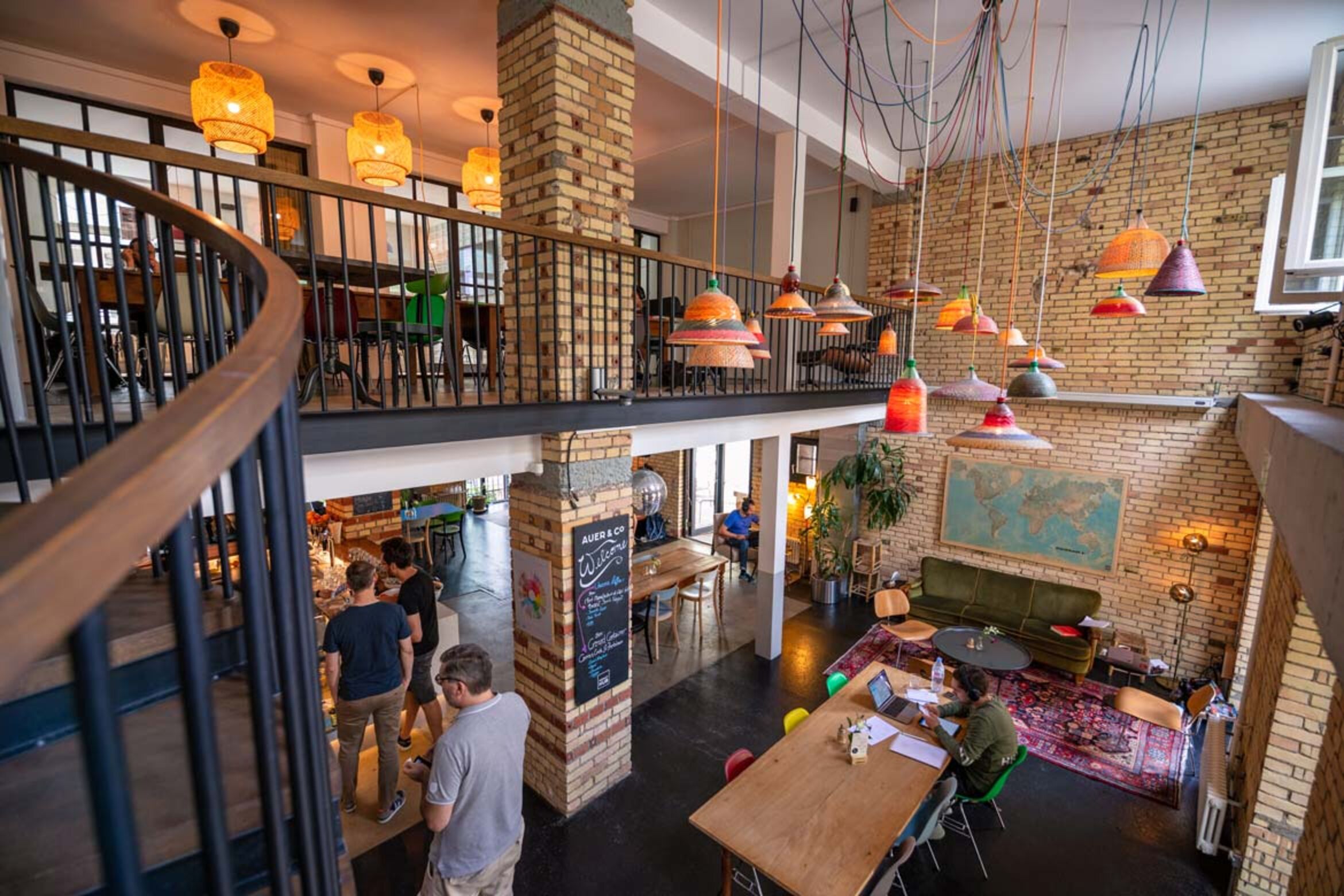
Self-employed persons and company founders alike can rent a spot in the various impact hubs for anywhere between one to five days per week. The bright and airy rooms are a major attraction of the hubs: the aim is to provide a space in which people can work hard while feeling at home. The red-brick walls of Café Auer, for example, have a New York vibe to them. The high-ceilinged, open-plan rooms are fitted with modern yellow and orange lamps to create an inviting, aesthetically pleasing environment.
The aim is to provide a space in which people can work hard while feeling at home.
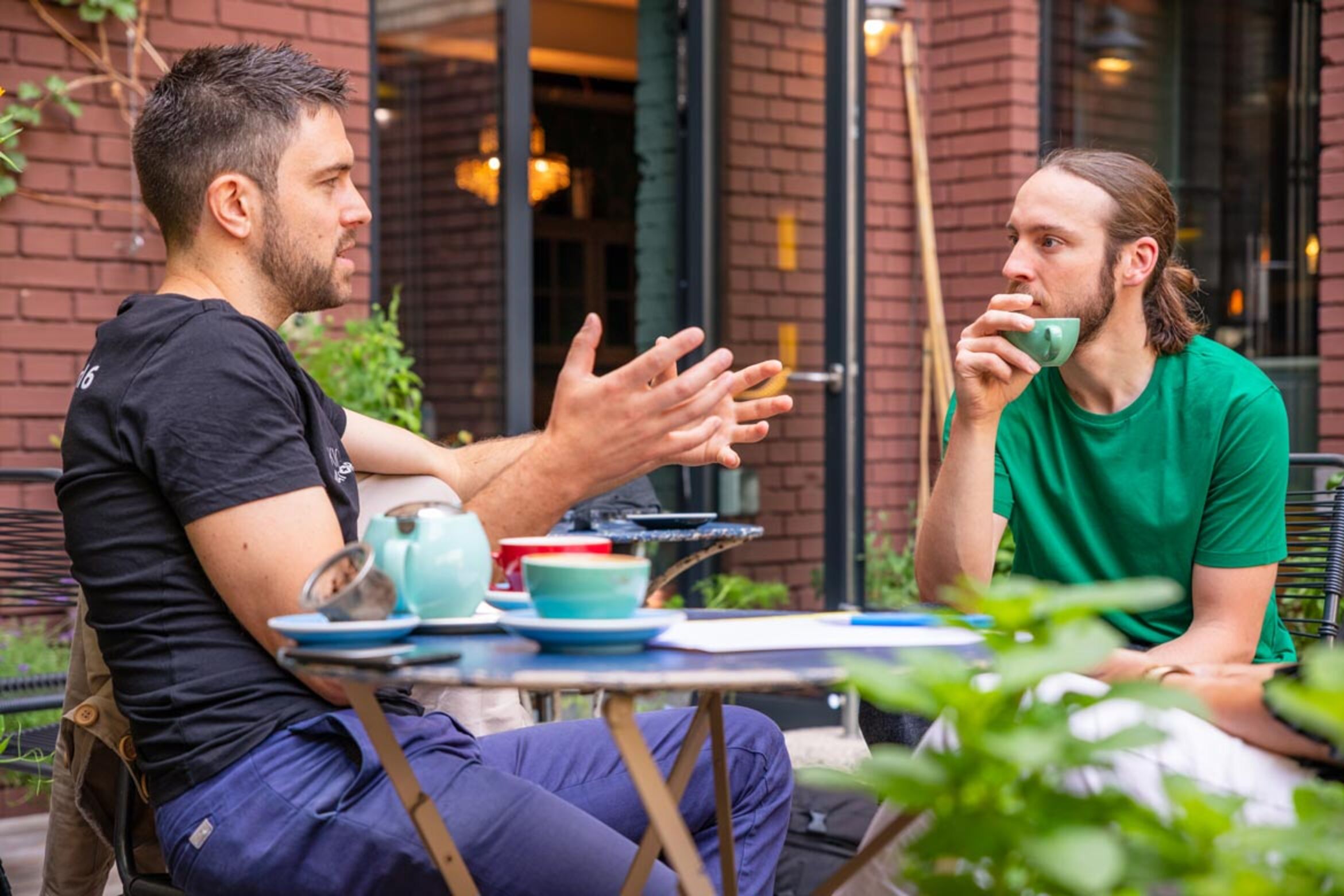
Members of one of the Zurich hubs can automatically use all of the other locations – this includes every hub in Zurich, Switzerland (Bern, Lausanne and Geneva) and the rest of the world. At present, there are 106 sites – from Antigua to Manila – in more than 50 countries.
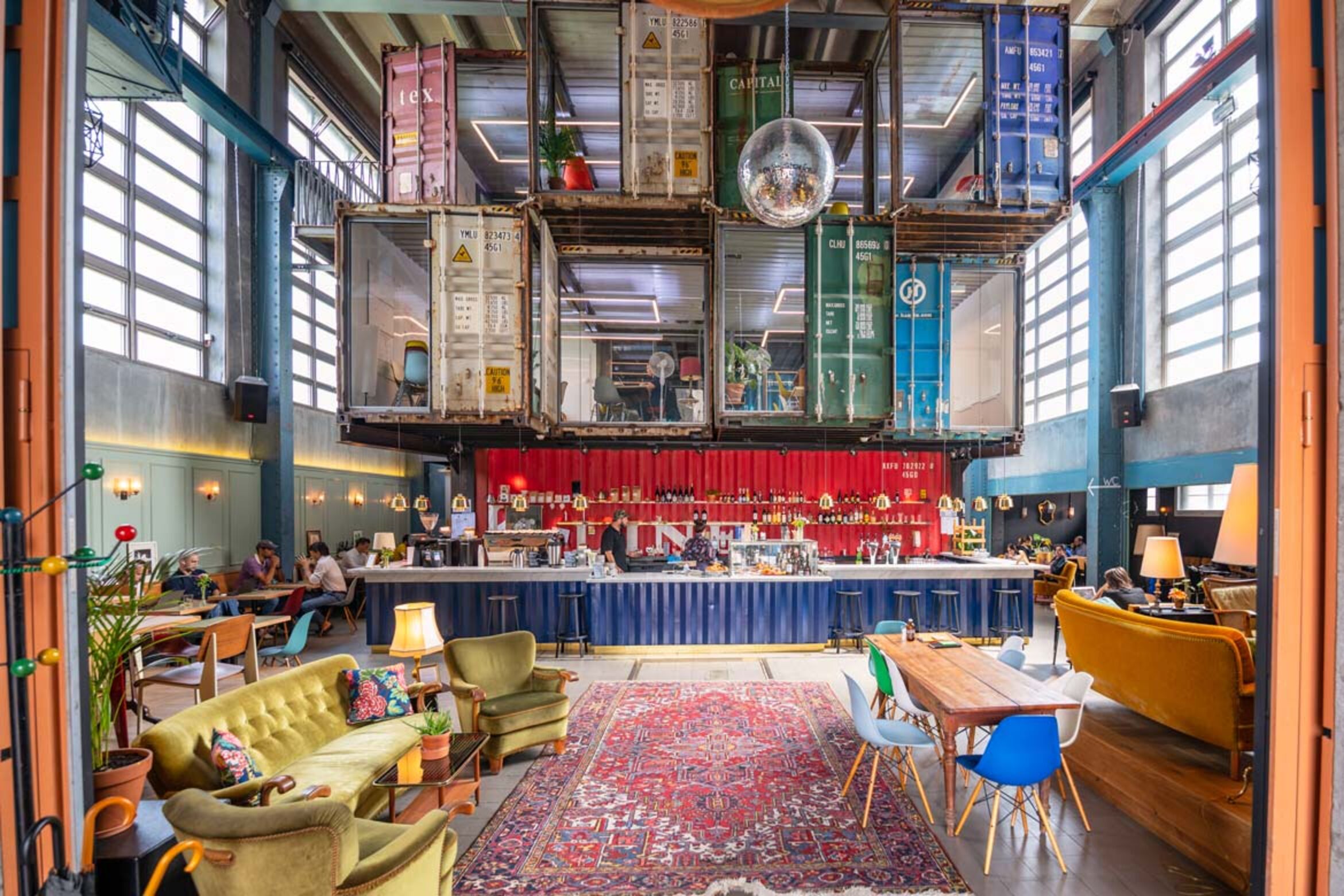
In addition to Colab on the Sihlquai, Impact Hub Zurich has coworking sites in the Viadukt and the Kraftwerk, which is located in a former electricity substation.
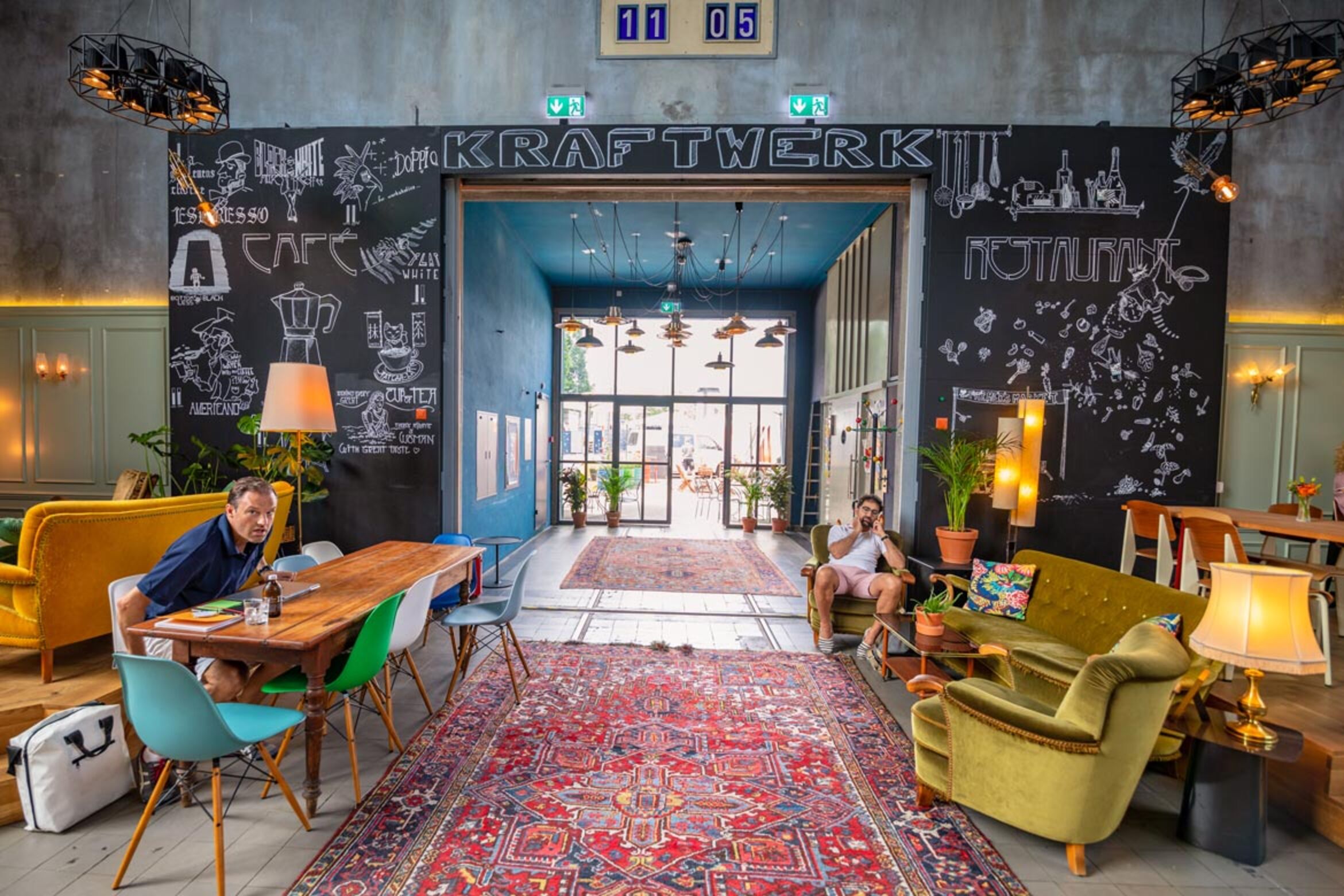
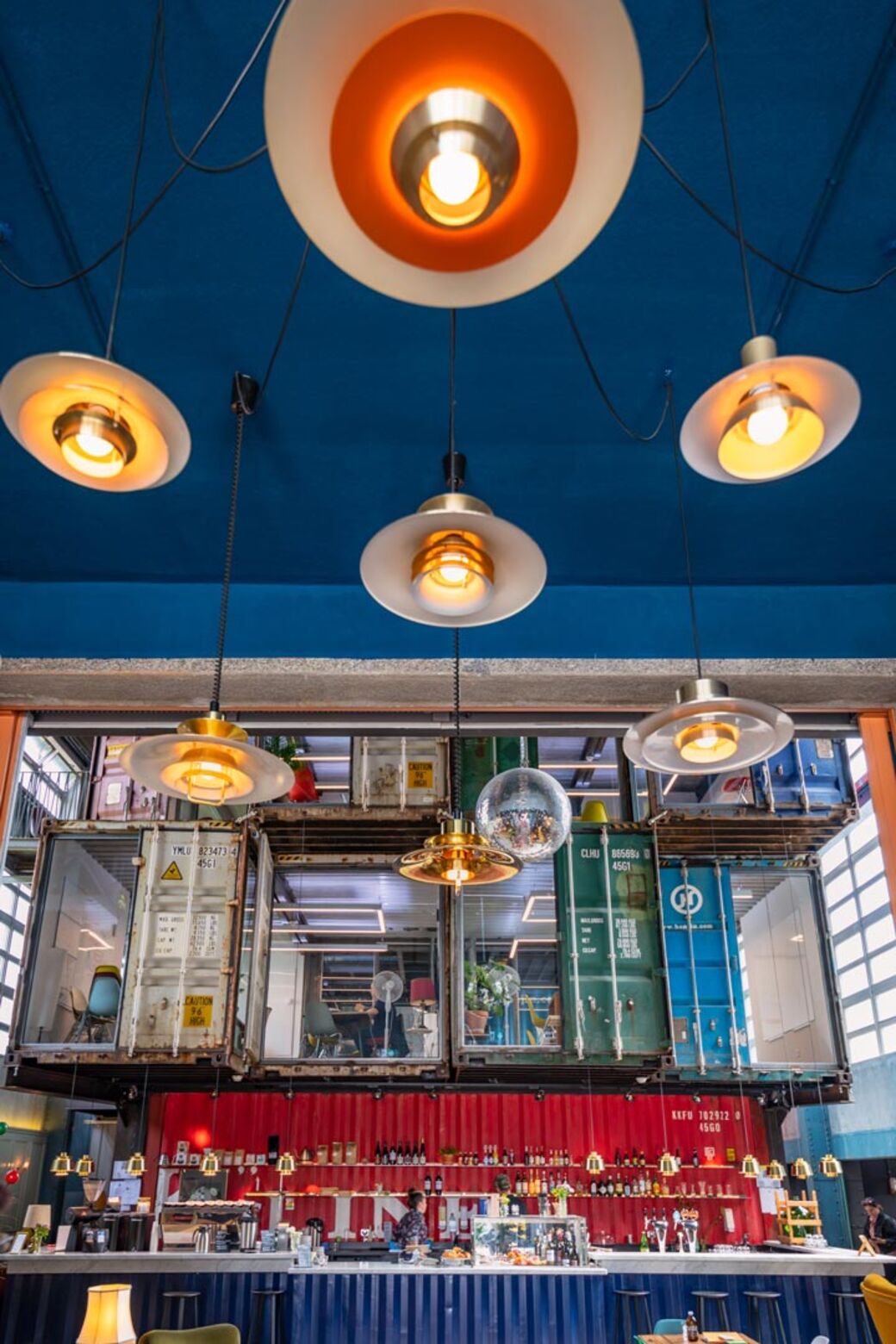
‘How do you like our classical music?’ asks the barista as he prepares my cappuccino. He makes me feel as though I’m speaking to an old friend. ‘The friendly, connected vibe is integral to all the hubs,’ explains Christoph. ‘The people who work here are not our customers – they are our members.’
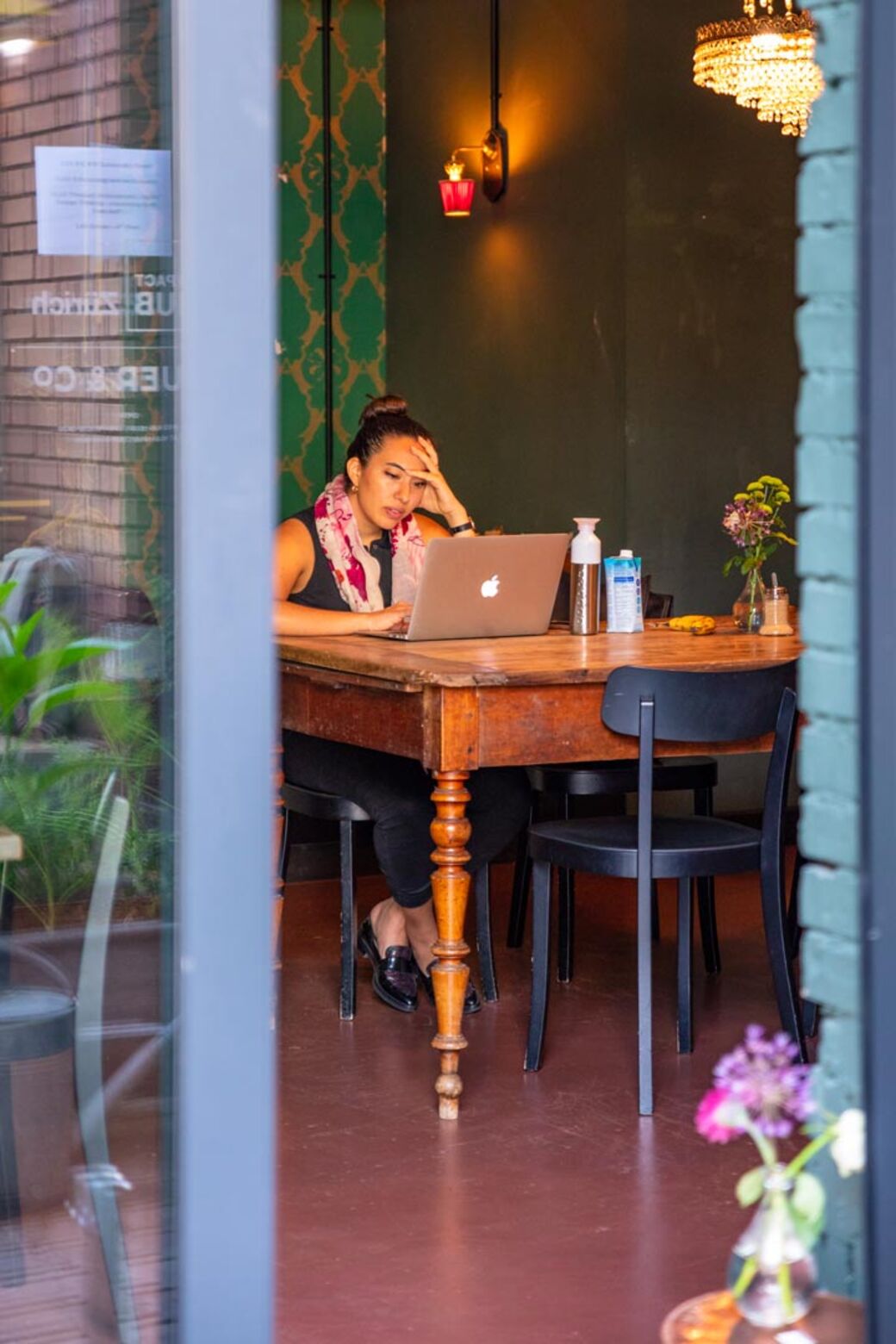
There are even people employed at the hubs solely to establish contact with others: these are the community builders and ‘hubonauts’, who are always up to speed on who is working on what at any given moment. They bring together various members based on how useful they might prove to be to one another. The hubs in Zurich are not a place where competitors lock horns. The opposite is actually true: ‘We do everything we can here to get startups off the ground,’ explains Christoph. And he means everything: from providing advice on business plans, to corporate networking.
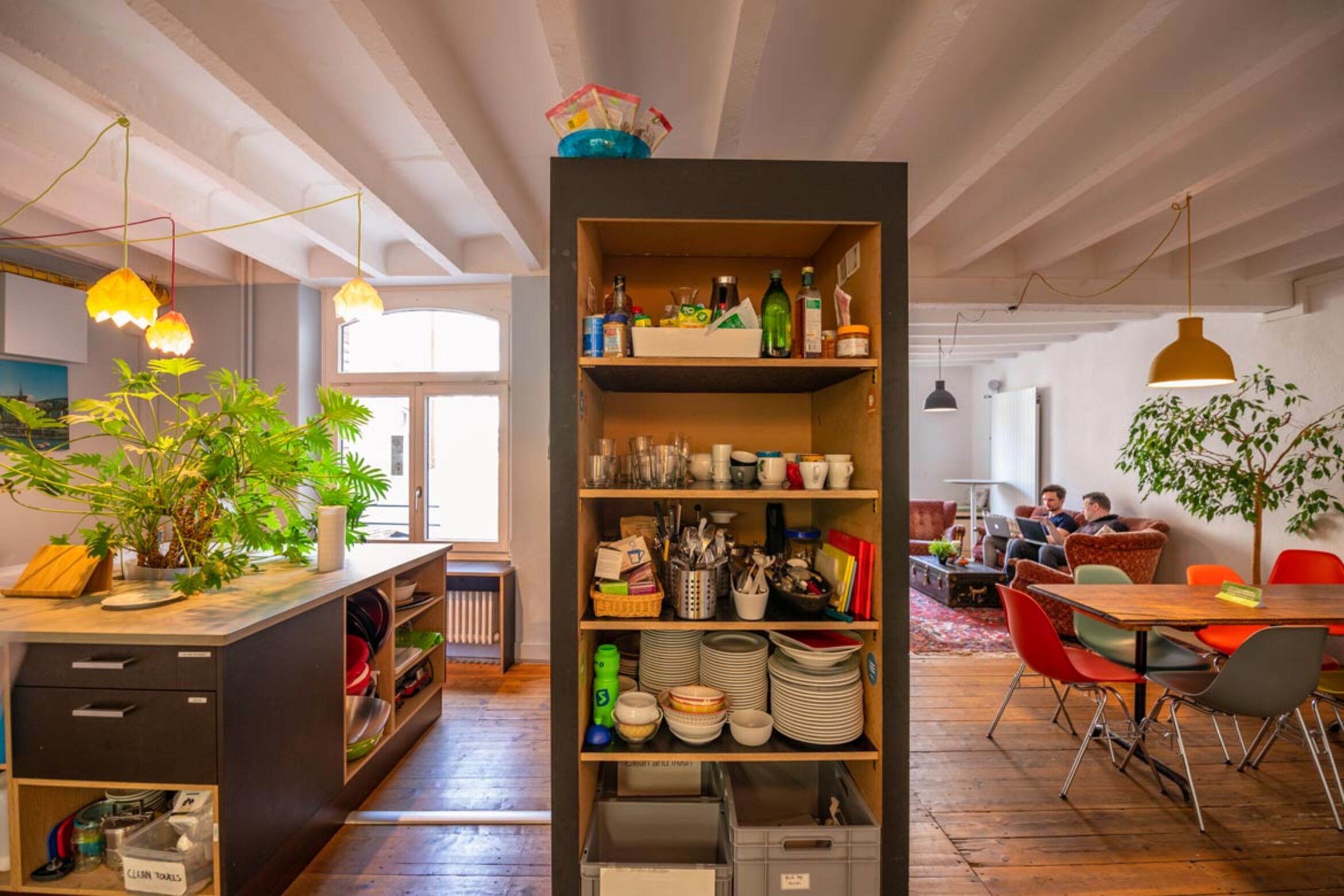
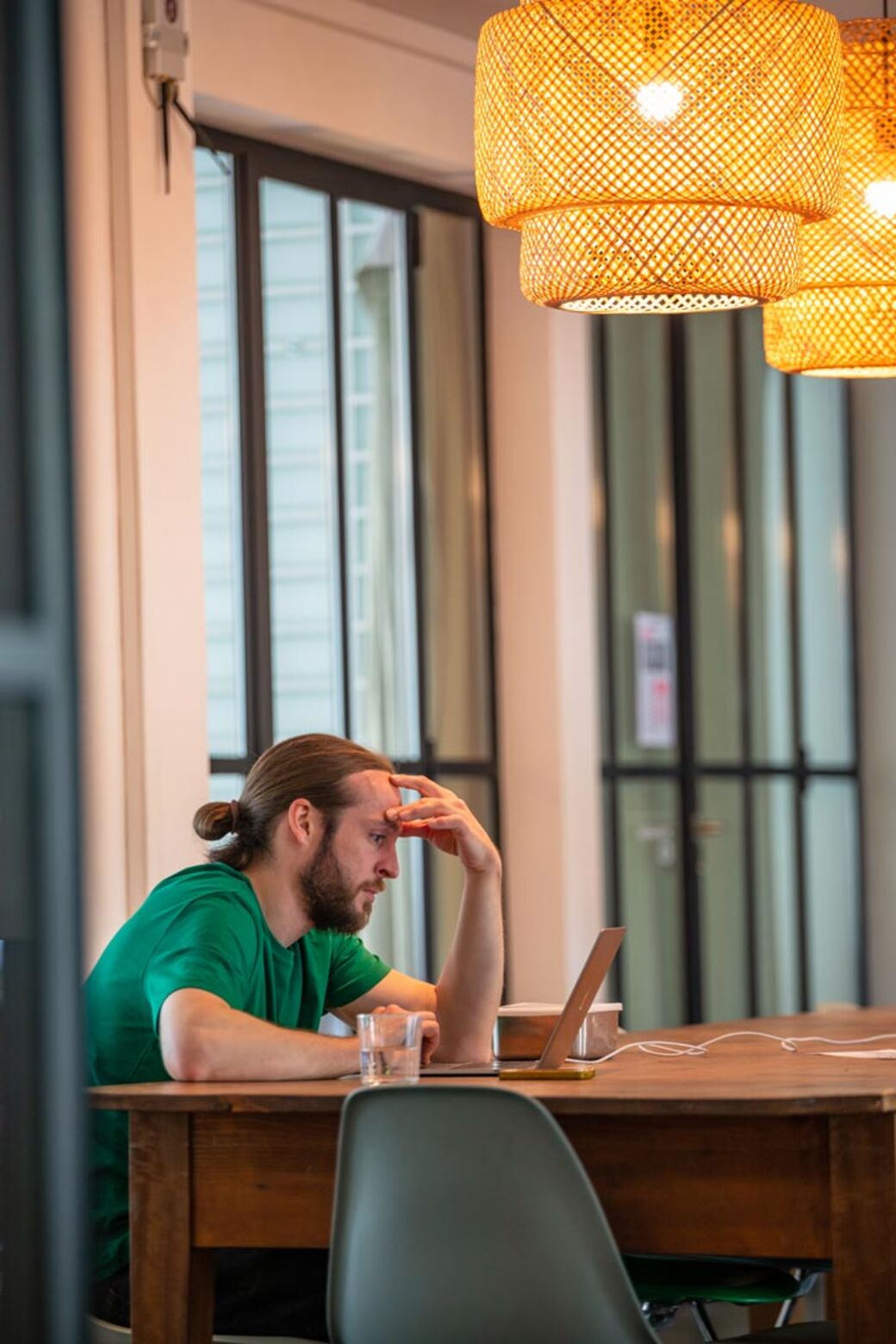
Tobias Joos is the founder of Crowd Container.
Crowd Container is one successful startup company that is now a fixture at Impact Hub Zurich. Company founder Tobias Joos (34) appreciates the support he receives in the Zurich hub. He spent a long time working in retail and lived for a while in South America. ‘When I saw how the small farmers there were having to break their backs for incredibly low wages, I decided to provide an alternative trading solution.’
‘When I saw how the small farmers there were having to break their backs for incredibly low wages, I decided to provide an alternative trading solution.’
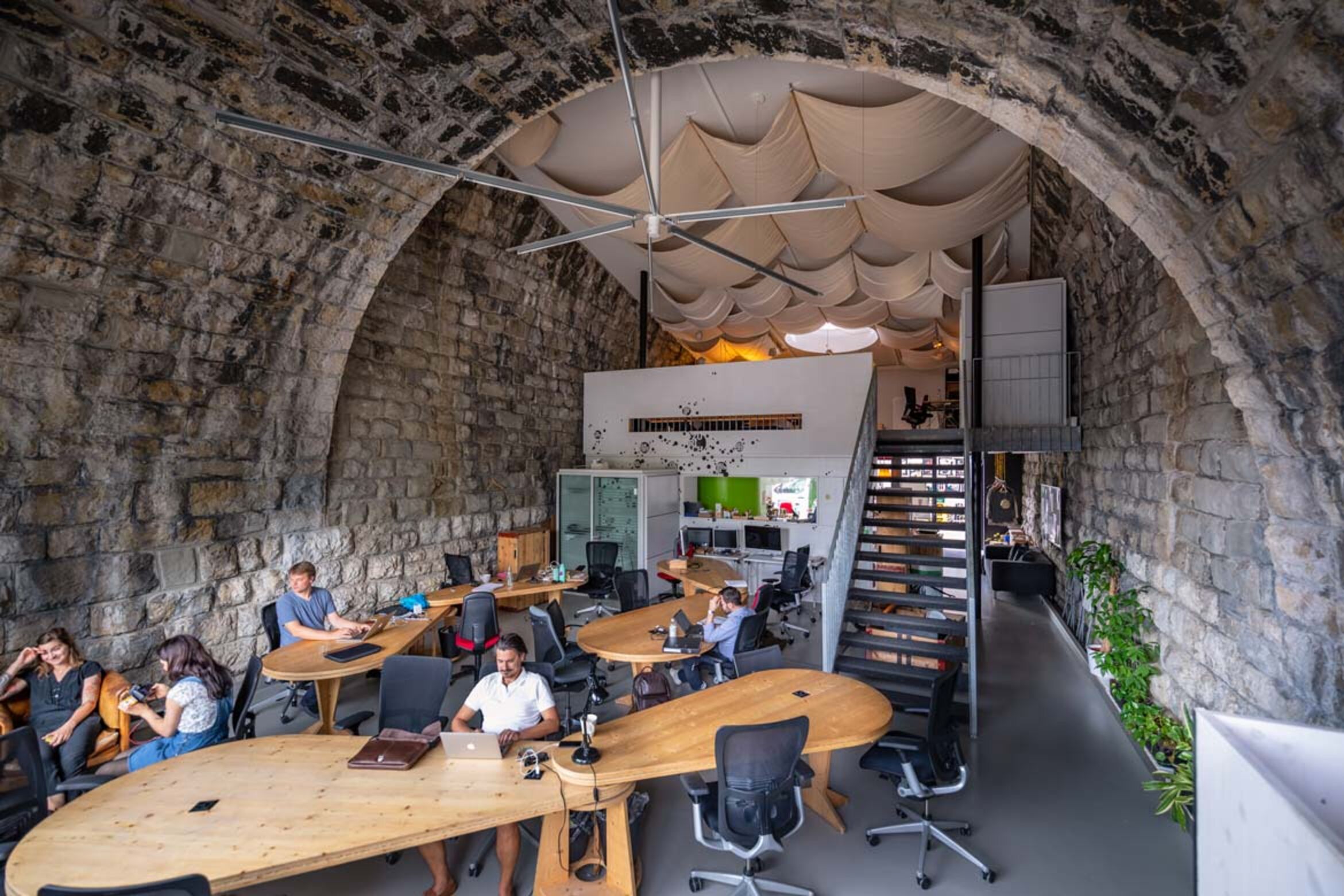
The Viadukt in district 5
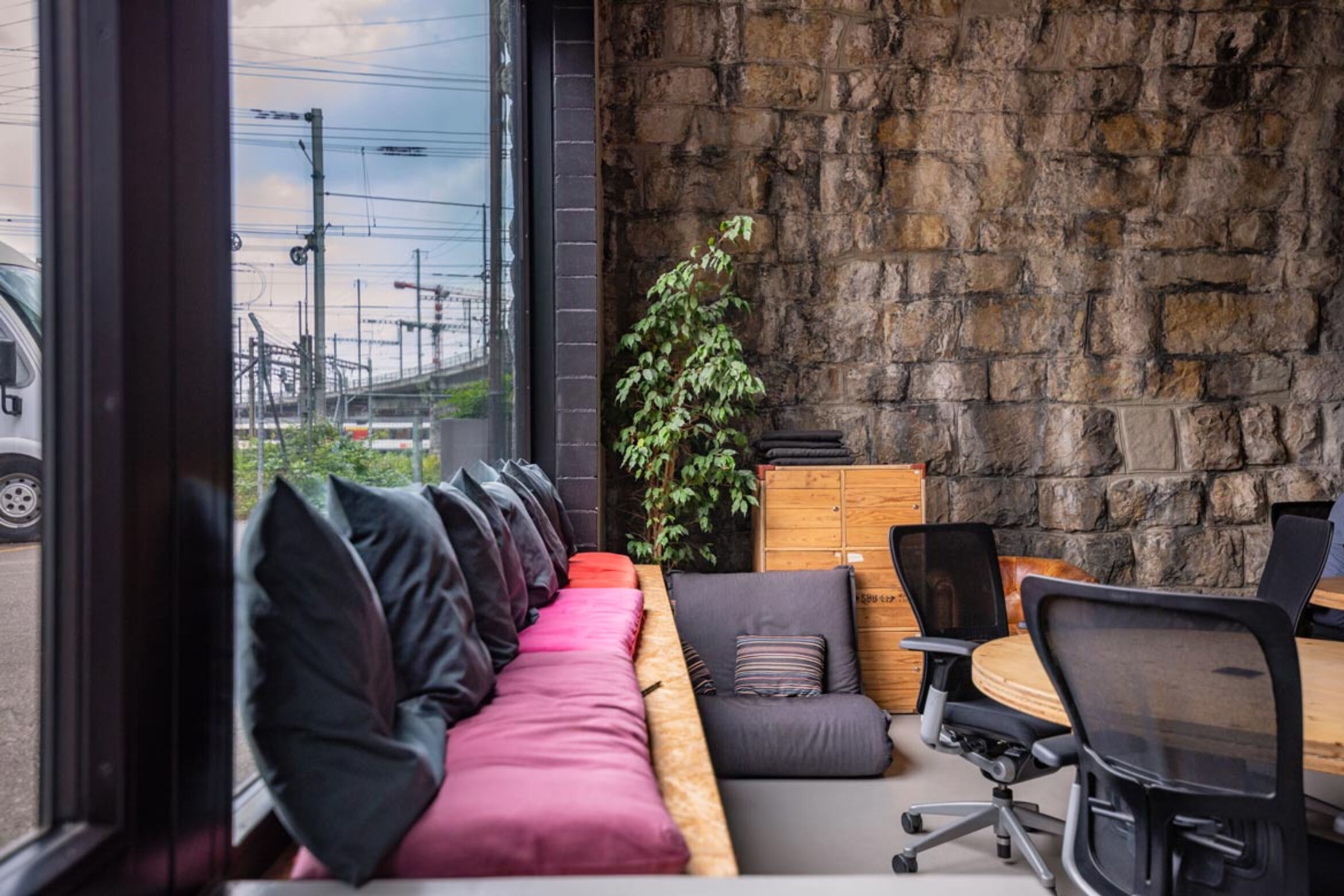
And thus the idea of a ‘crowd container’ was born: Tobias and his colleagues put end consumers in Switzerland in direct contact with producers in three countries from whom they can order fresh produce. Once enough orders have been placed, a container in that specific country is filled up and shipped to Basel. From there, the goods are transported directly to the customers’ doors. Alternatively, they can collect their package from a pick-up point.
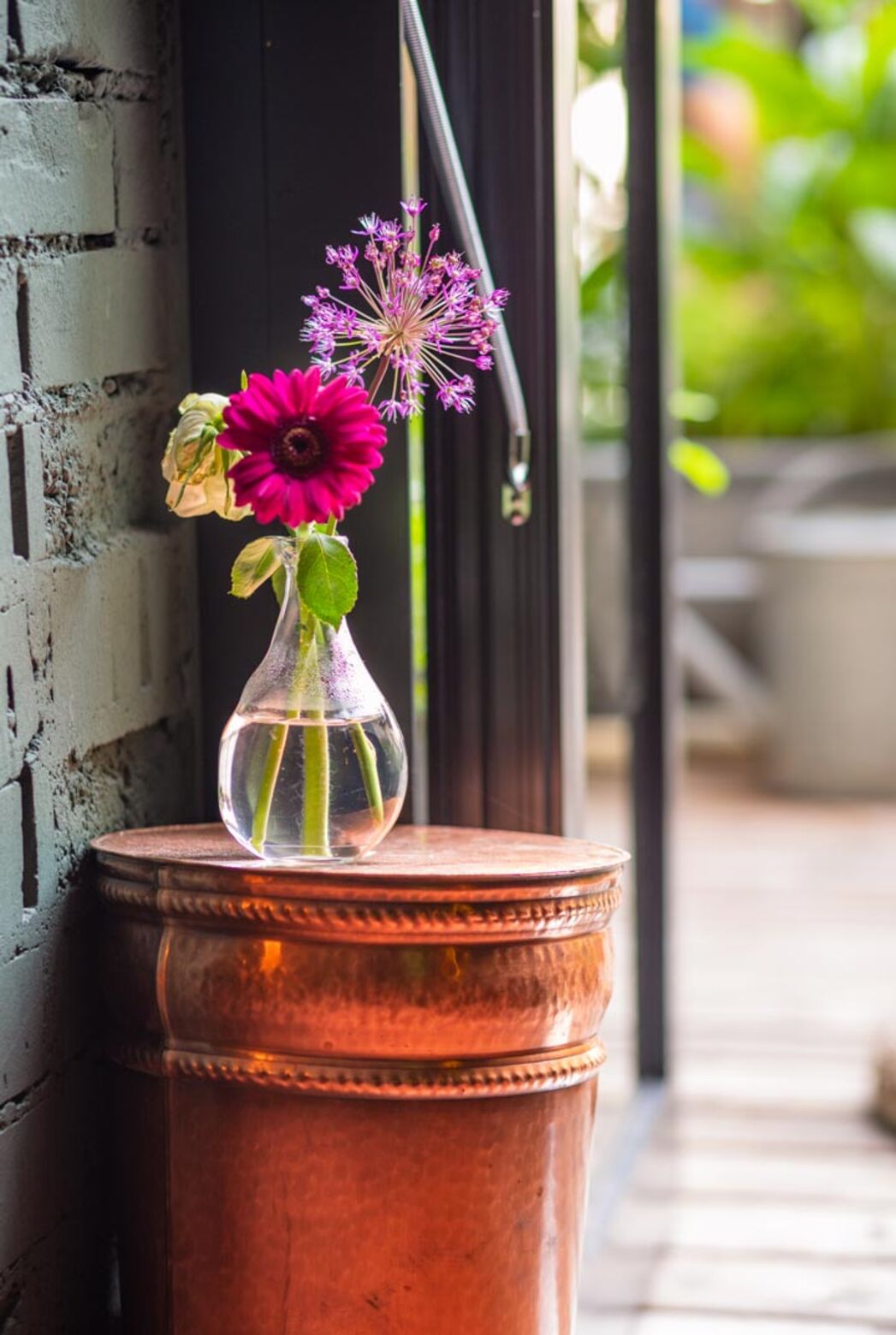
‘The greatest thing about my job is meeting interested consumers and facilitating an exchange with the producers,’ explains Tobias, whom I also meet in Café Auer. He and his colleagues have organised numerous Skype conferences between Swiss consumers and foreign producers. ‘These conferences have enabled the coffee producers who run coffee plantations in extremely remote Peruvian forests to actually set eyes on the consumers in Switzerland who drink their coffee,’ describes the enthusiastic company founder. ‘This establishes a bond between people. Being able to facilitate these encounters is a fantastic feeling.’
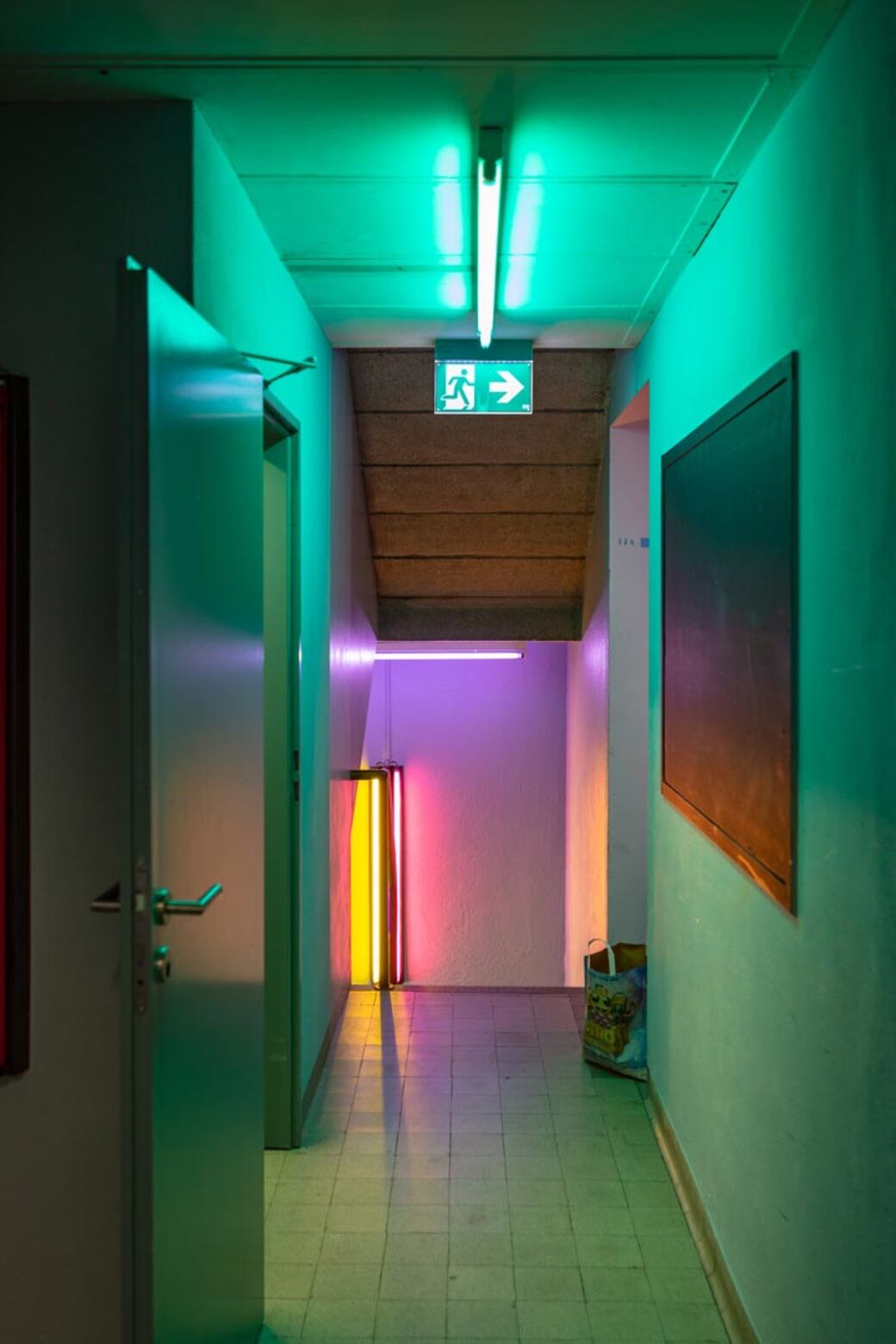
This motivates Tobias Joos to bring products onto the market that simply would not be able to keep pace with industrial mass production, whether in terms of price or due to a lack of availability or uniformity. ‘These products would never make it into supermarkets despite how great they taste,’ asserts Tobias. ‘On a related note, I have a great interest in transparent trade and transparent pricing – two areas where we are currently breaking the taboo,’ he says happily. During his time working in wholesale, Tobias learned that talking about purchase prices is an absolute no-go area. He contends that this taboo mainly applies to producer costs.
‘These products would never make it into supermarkets despite how great they taste.’
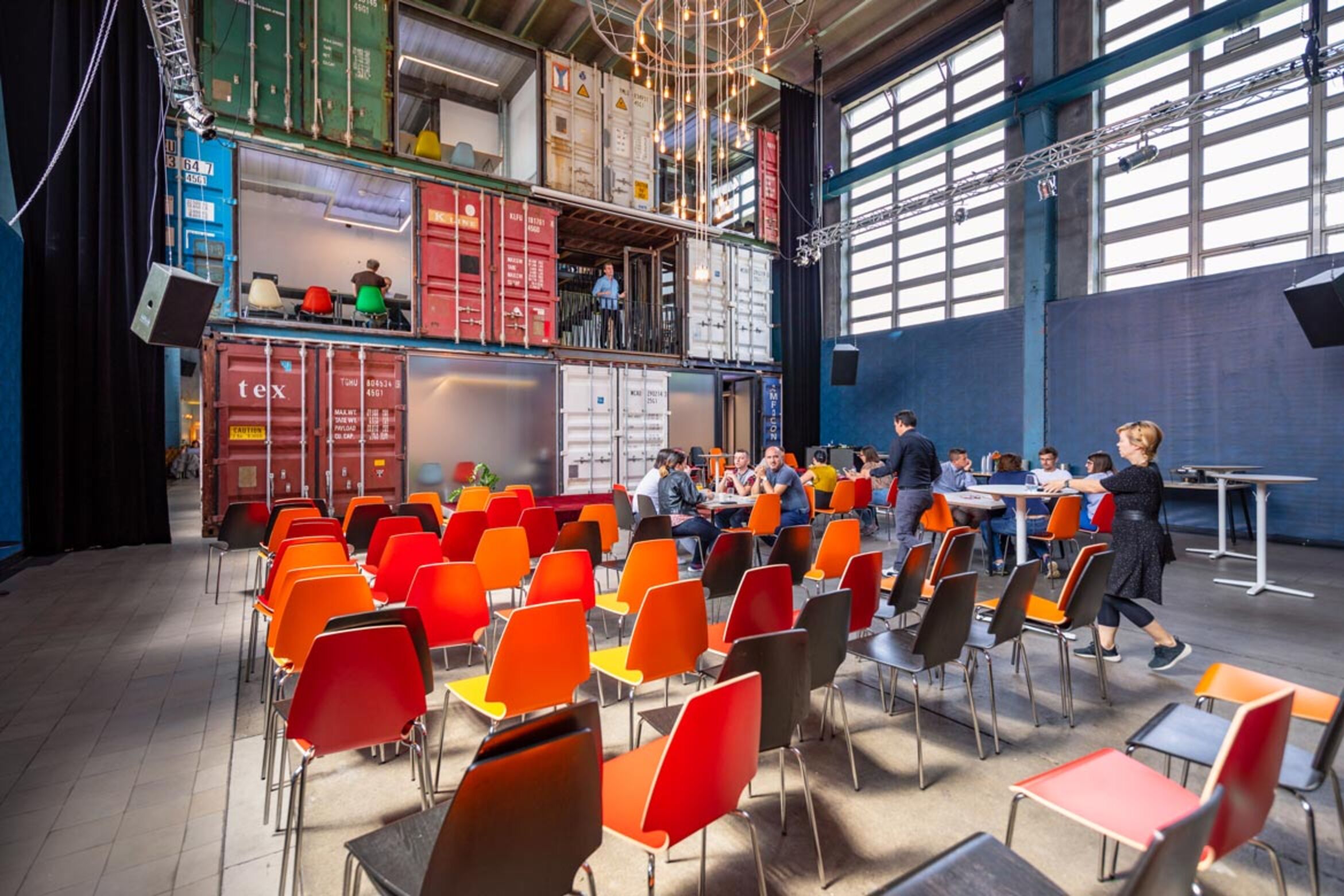
He, the association members and the corporate members of Crowd Container want to bring about fair, transparent trade. The prices they charge Swiss consumers can be passed on to the small farmers in Sicily, Peru and Kerala (India) to ensure they receive a decent income. Crowd Container pays its coffee farmers in Peru 2.8x the global market price for their green coffee beans. For the coffee farmers, this results in a minimum wage of USD 14 per day – the same amount that a construction worker earns in the country.
Address
Impact Hub – Colab & Café Auer
Sihlquai 131
8005 Zürich
+41 044 273 58 79
Website
Opening times
Coworking Space
Monday to Friday, 9 am – 7 pm
Café Auer & Co.
Monday to Wednesday, 8 am – 10 pm
Thursday and Friday, 8 am – midnight
Saturday, 10 am – 7 pm
Sunday, 11 am – 7 pm
Info
In addition to Colab on the Sihlquai, Impact Hub Zurich has coworking sites at arches D & E in the Viadukt and the Kraftwerk, which is located in a former electricity substation (ewz-Unterwerk Selnau).
